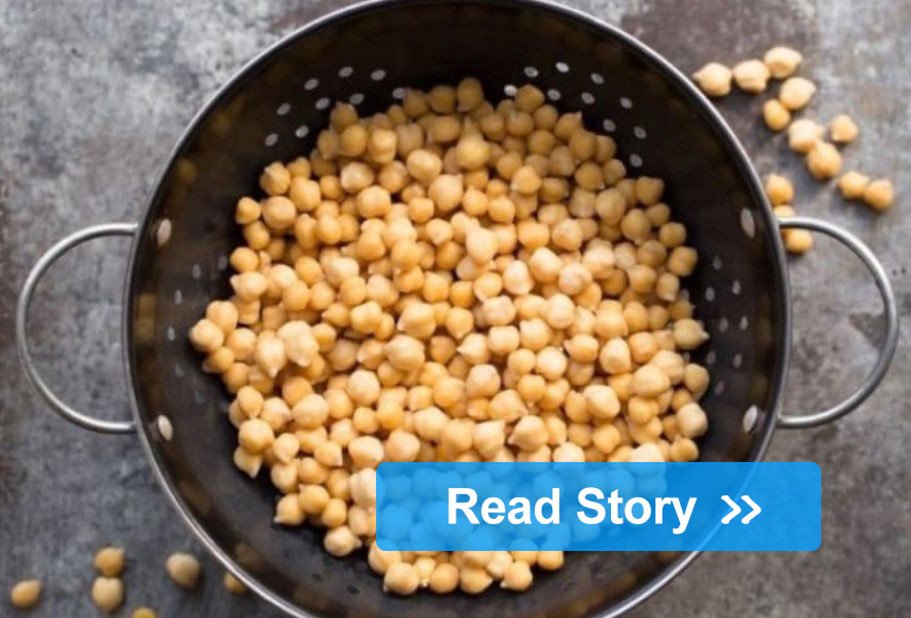
Chickpeas
Keeping up with health food trends is getting harder and harder. However, there are plenty of whole foods that offer plenty of benefits and are easy to find.. These are our recommendations for the best heart healthy foods!
Chickpeas
Chickpeas are the mighty legume that truly pack a punch. They contain potassium, fiber, and plenty of vitamins, which can help lower cholesterol and prevent the risk of heart disease.
Coffee
Who doesn’t love coffee? The beloved beverage has been shown to be beneficial to heart health in some studies. Moderate coffee consumption can help reduce the risk for coronary heart disease, stroke, and even heart failure! Just make sure you limit the cream and sugar.

Coffee
Cranberries
Cranberries may be small, but their benefits are considerable. The tart little berries are packed full of nutrients and antioxidants, which in turn help reduce the risk of heart disease. In addition, cranberries are also known for helping the prevention of UTIs and can help reduce risk factors for cancer, stomach ulcers, and gum disease.
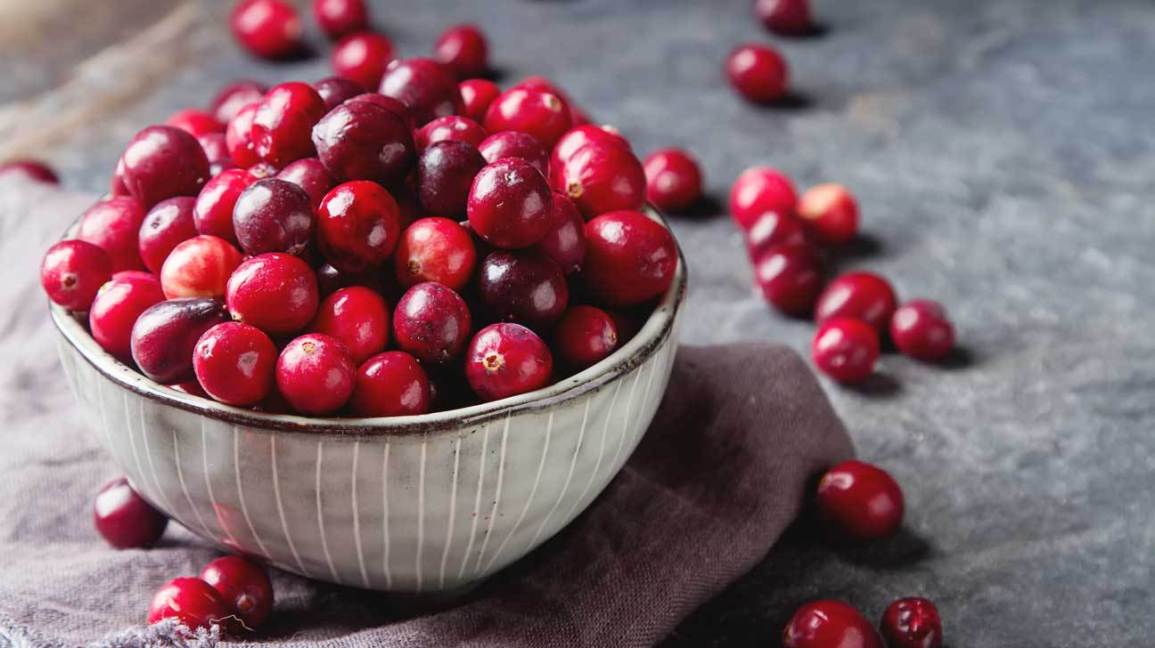
Cranberries
Figs
Figs are perhaps one of the most under appreciated fruits out there! These wonderfully sweet fruits are packed with fiber and calcium. They are also quite beneficial for helping prevent cardiovascular diseases.
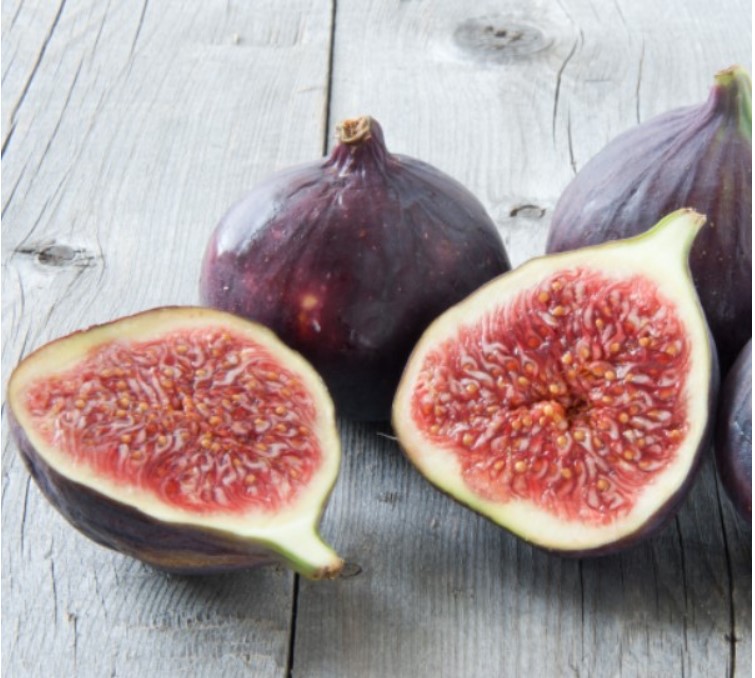
Figs
Flax Seeds
For those of us who don’t love the taste (or smell) of fish, flax seeds are another great source of Omega-3 fatty acids. Digesting these seeds can be tough, but grinding them up will do the trick! The seeds are full of antioxidants and nutrients that help keep your heart healthy.
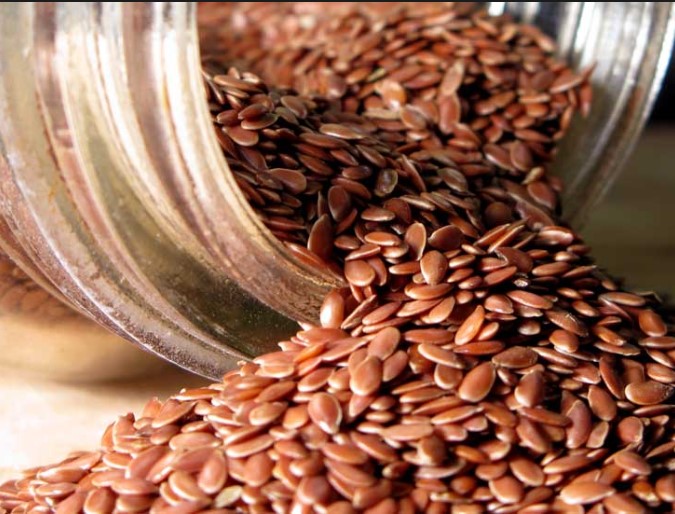
Flax Seeds
Chili Peppers
Chili peppers have gained popularity, perhaps thanks to the band Red Hot Chili Peppers, but the spicy peppers certainly pack a powerful punch. Chili peppers contain capsaicin, which helps regulate blood pressure and cholesterol, meaning a healthier heart. Just make sure you can handle the heat!
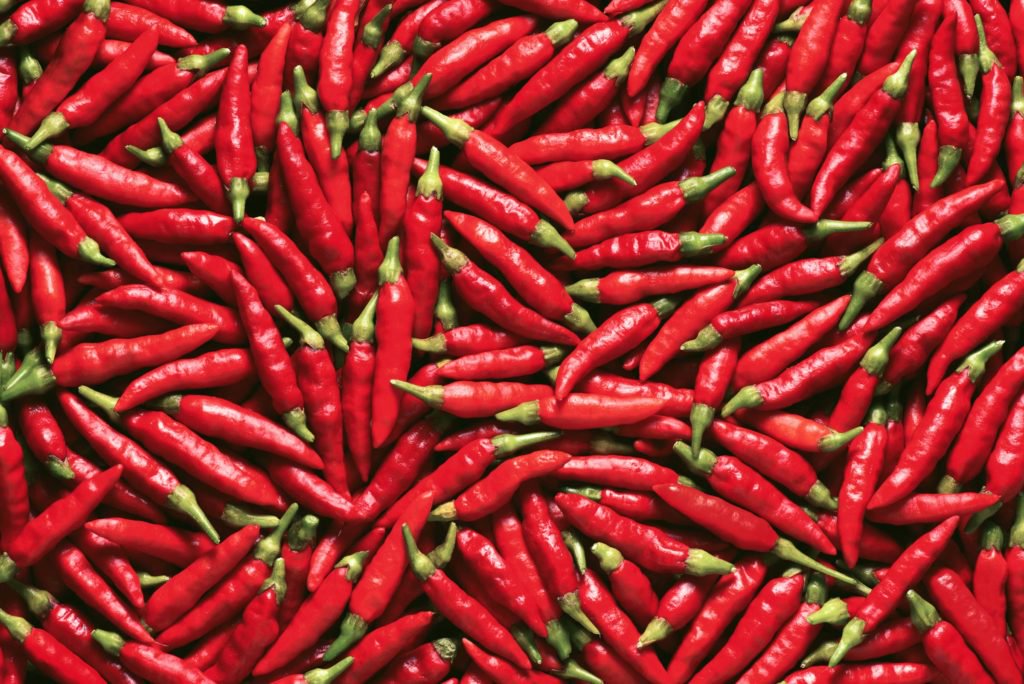
Chili Peppers
Ginger
Ginger has slowly but surely made its way into the mainstream, and thankfully so. The fragrant and slightly spicy root helps reduce the risk of cardiovascular issues such as coronary heart disease and high blood pressure.
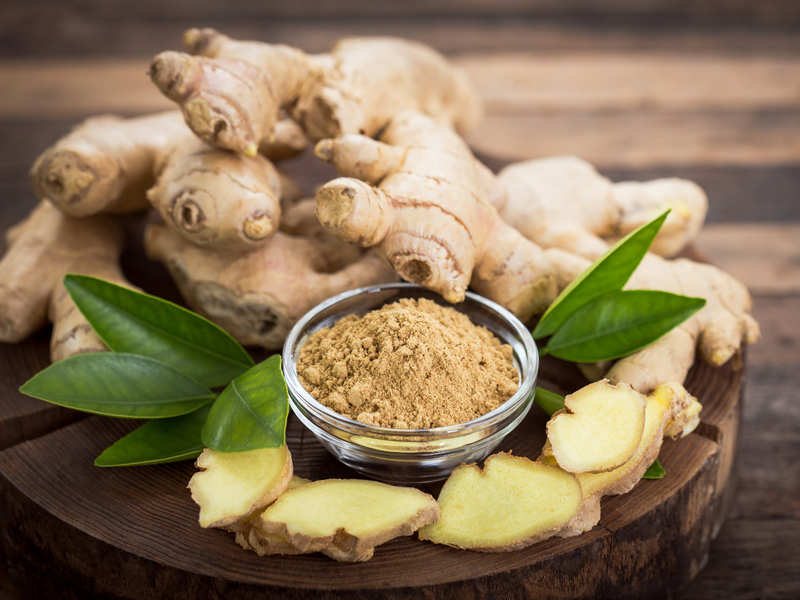
Ginger
Grapefruit
Grapefruits get a bad rep, but they’re insanely beneficial to everyone, but especially those who are looking to improve their heart health! They’re loaded with lycopene, fiber, potassium, and choline. They’re also recommended by the DASH meal plan, which is meant to reduce blood pressure.
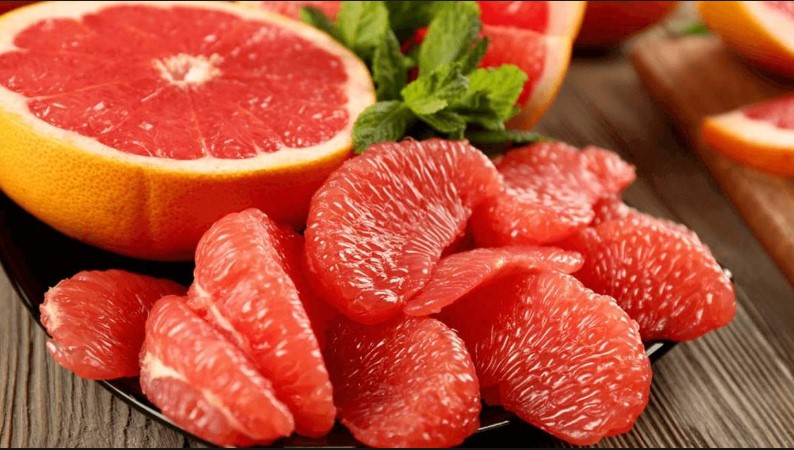
Grapefruit
Green Tea
Green tea is well known for being beneficial for improved health, but did you know it can also help prevent plaque buildup in the arteries? Drinking green tea also helps reduce LDL cholesterol as well as triglycerides. Wash away these issues with a cup of green tea!
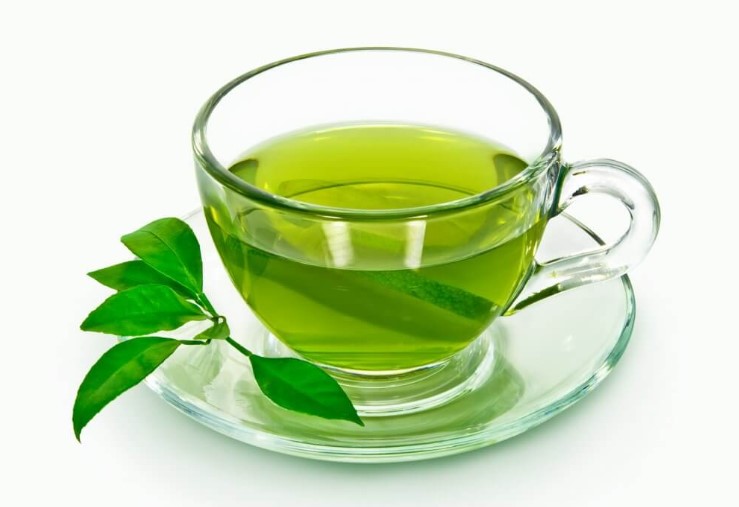
Green Tea
Kidney Beans
Kidney beans are a hearty and heart healthy addition to any soup or salad. These beans are full of protein, magnesium, and folate, which help control homocysteine levels and help reduce the risk of heart disease, strokes, and cancer.
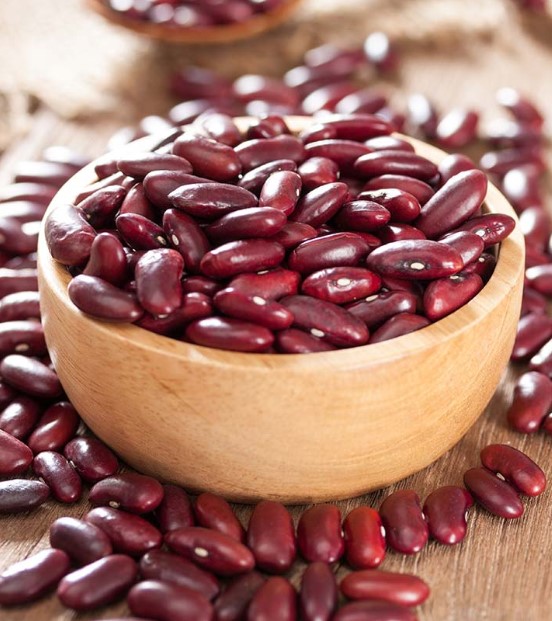
Kidney Beans
Oranges
Oranges are seriously one of the best fruits out there! The juicy citrus fruit helps reduce cholesterol levels and blood pressure. Full of vitamin C, potassium, and fiber, oranges can also help flush sodium out of your system.
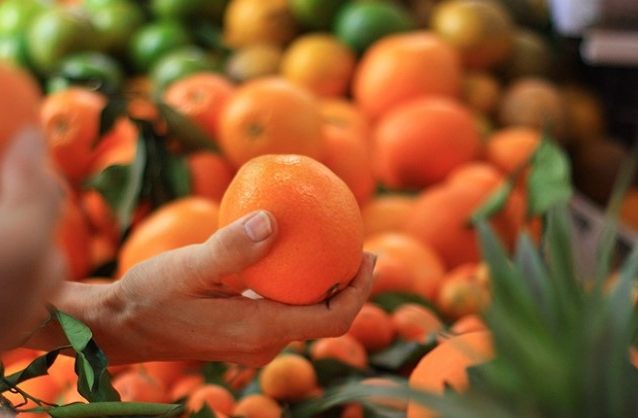
Oranges
Kale
Kale is probably the most popular member of the cruciferous vegetables at the moment. And it’s with good reason, as kale is full of fiber, Omega-3s, and antioxidants. This means that the crunchy veggie helps maintain your cardiovascular health and helps prevent heart disease.
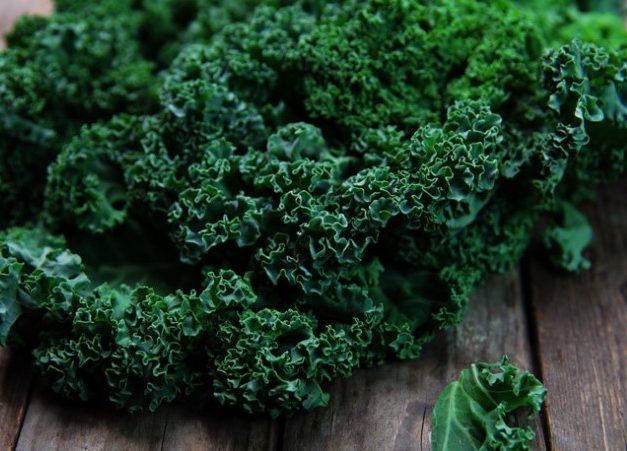
Kale
Garlic
While we all love garlic bread, it isn’t quite as healthy as garlic in its pure form. The pungent cloves are quite beneficial for your health, as garlic can help reduce the presence of enzymes that constrict blood vessels, as well are prevent plaque buildup in your arteries.

Garlic
Lentils
Lentils are a great vegetarian option for adding more protein into your diet. These heart healthy legumes are also a great source of potassium and magnesium, lentils are great for reducing the risk of strokes and heart disease. Additionally, they’ll help you reduce plaque buildup in the your arteries and reduce blood pressure and cholesterol levels.
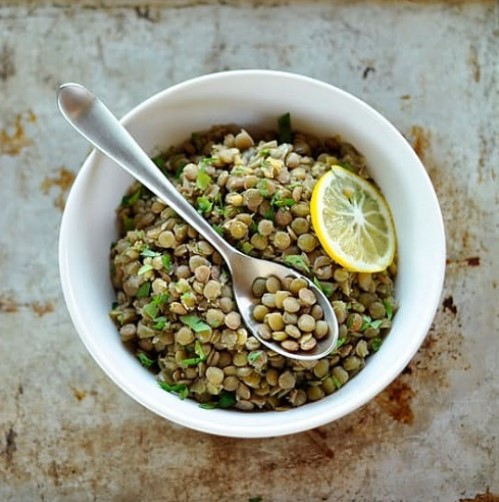
Lentils
Almonds
Almonds are not only a crunchy satisfying snack, they’re chock full of health benefits. These yummy nuts improve cognitive functionality and help fight heart disease! Almonds also help avoid LDL cholesterol absorption, due to the high level of plant sterols found in the nut.
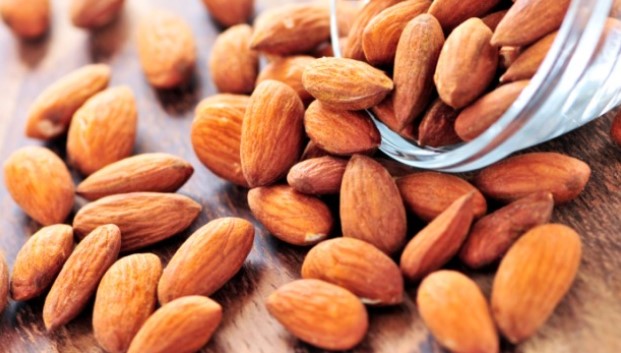
Almonds
Pomegranates
Pomegranates are seriously underrated! They make a great addition to salads or great enjoyed all on their own. Pomegranate seeds are an excellent defense for your heart, as they help lower the plaque accumulated on the arteries and help prevent heart disease. Pomegranates also help reduce the risk of diabetes, Alzheimer’s, and prostate cancer.
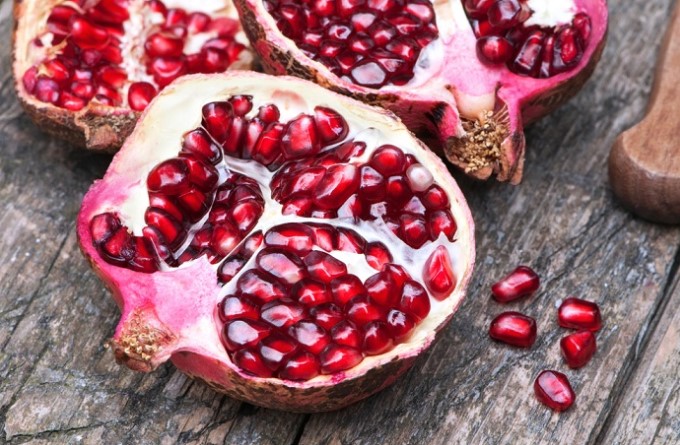
Pomegranates
Blueberries
Blueberries are both amazingly delicious and also packed full of nutrients and antioxidants. Just three servings a week can help keep cholesterol levels in check, prevent plaque buildup in the arteries, and improve your blood pressure. Blueberries can also help prevent heart disease and cancer.
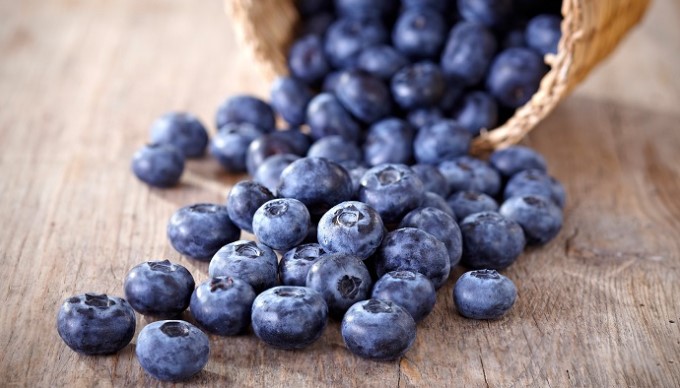
Blueberries
Beets
Beets are quite underrated, as they are bursting with health benefits. Being a great source of antioxidants, minerals, and minerals, beets help reduce levels of homocysteine, prevent heart disease and cancer, and also strengthen many of your organs.
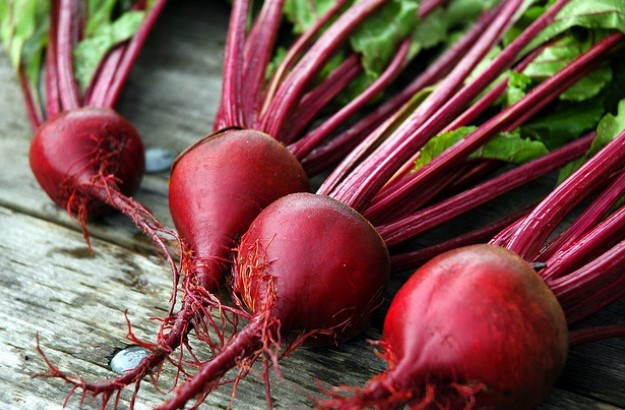
Beets
Salmon
Salmon fish is an excellent option as a source of protein and healthy fats, as well as Omega-3 fatty acids. The fish’s health benefits include lowing triglycerides, help reduce the risk of blood clots, and fight heart disease. Plus, salmon is quite delicious!
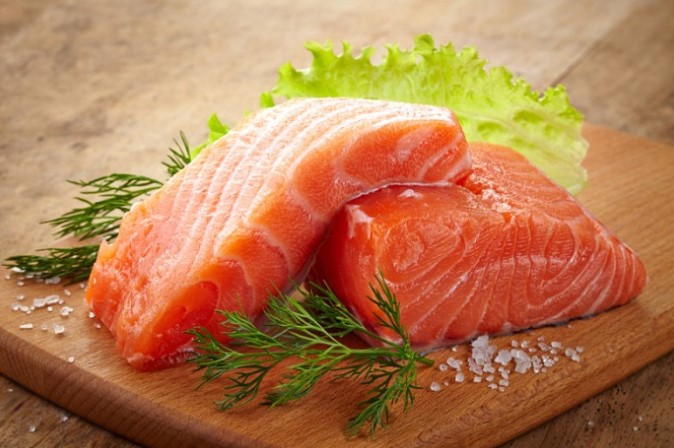
Salmon
Turmeric
Turmeric’s popularity has been on the rise recently, and we can tell you exactly why. The vibrant root and spice contains curcumin, an active compound that aids in blocking heart enlargement. Turmeric also helps reduce risk of obesity, high blood pressure, and blood vessel issues. Try a turmeric latte with honey and cinnamon, they’re delicious!
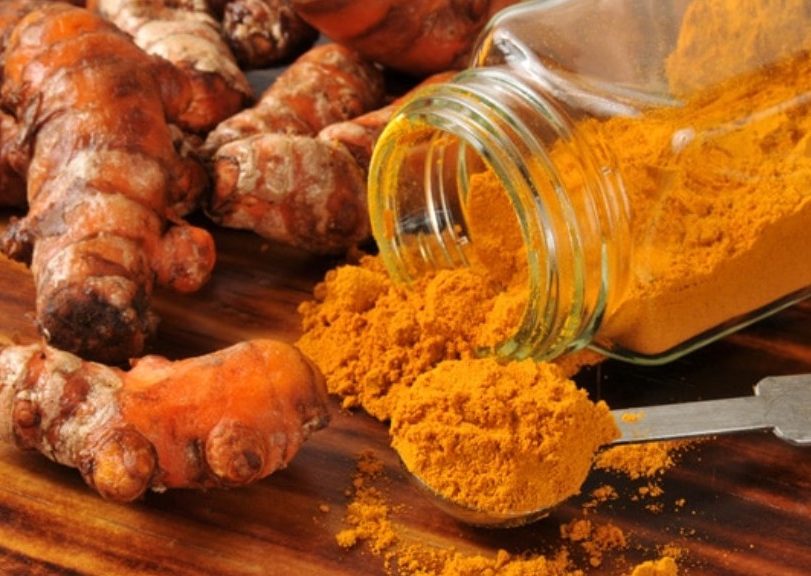
Tumeric
Chia Seeds
Chia seeds are a great addition to smoothies, protein shakes, and can be made into delicious pudding very easily. These tiny seeds are full of protein, fiber, Omega-3s, and antioxidants. This means that chia seeds can help lower levels of cholesterol and maintain overall cardiovascular health.
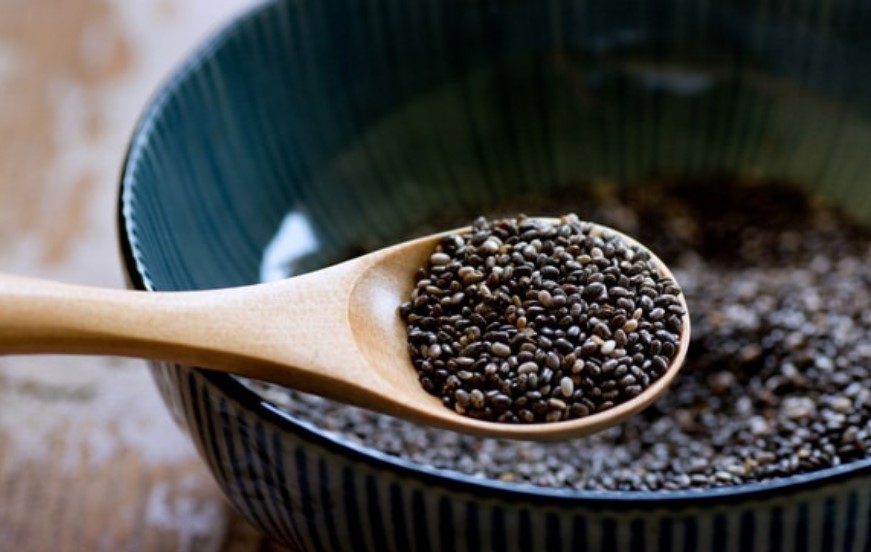
Chia Seeds
Apples
We’ve all heard the expression, “an apple a day keeps the doctor away,” and it seriously might as well be true! Apples come in all colors, varieties, and flavors, so you’re sure to find a kind that you’ll love. Apples are beneficial to your health because they contain vitamins, minerals, and antioxidants that help prevent heart disease and lower blood pressure.
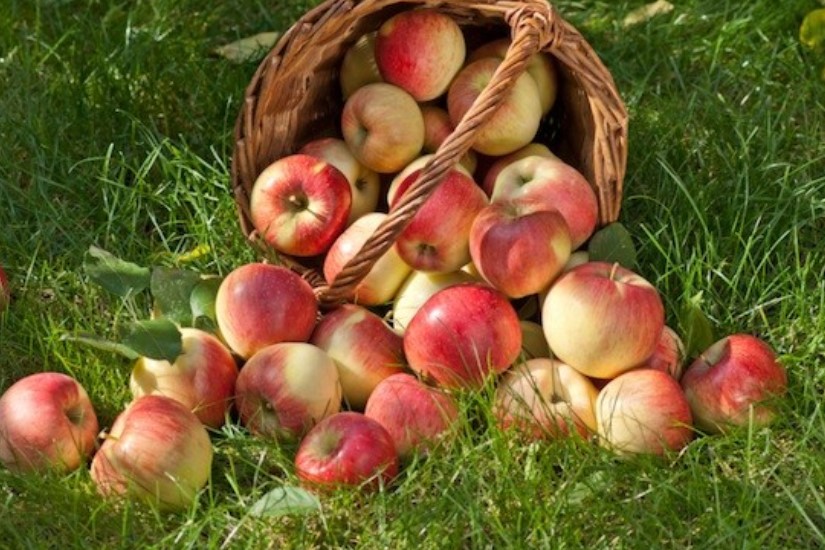
Apples
Avocados
Avocados are probably the most popular they’ve ever been, thanks to Millennials and their love of avocado toast! However, this is a healthy obsession, as avocados contain monounsaturated fats, potassium and antioxidants. All of these help prevent heart disease, lower cholesterol, and improve overall heart health.
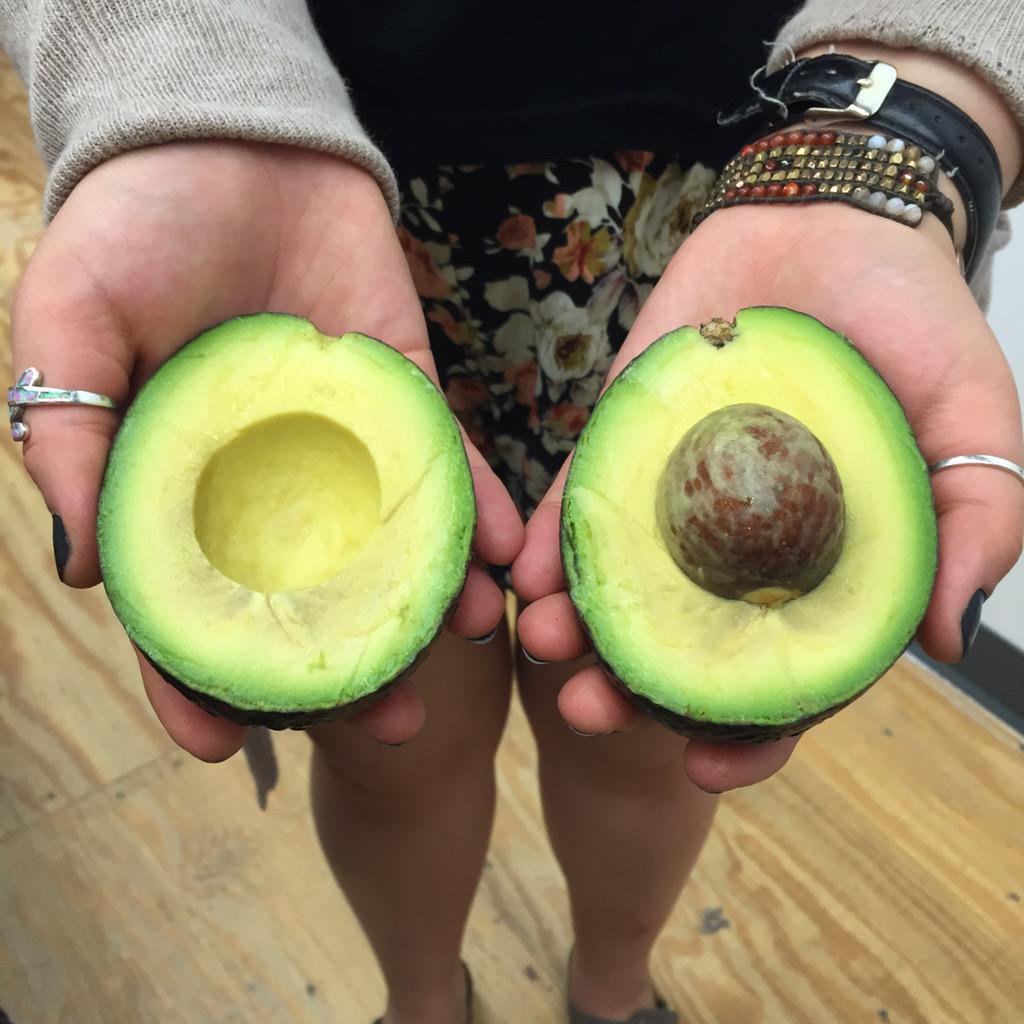
Avocados
Eggplant
Eggplants are an excellent source of vitamins, minerals, nasunin, and flavonoids. This means that eggplants help blood circulation and in turn help avoid blood clots, lowers cholesterol, and helps prevent heart disease. Besides, they’re so versatile, you can never get bored of eating them!
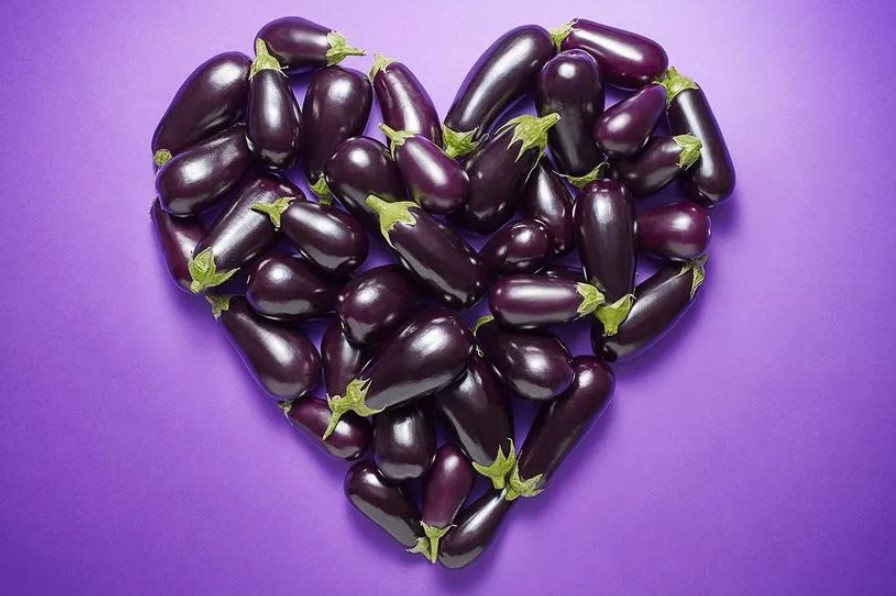
Eggplant
Broccoli
Broccoli has a tough reputation, especially with kids. Maybe its because it resembles a tree, but either way, it’s a big shame! Broccoli is a superfood that is beneficial to your cardiovascular health. It contains sulforaphane, which gives the veggie anti-inflammatory properties that aids in preventing blood-sugar issues.
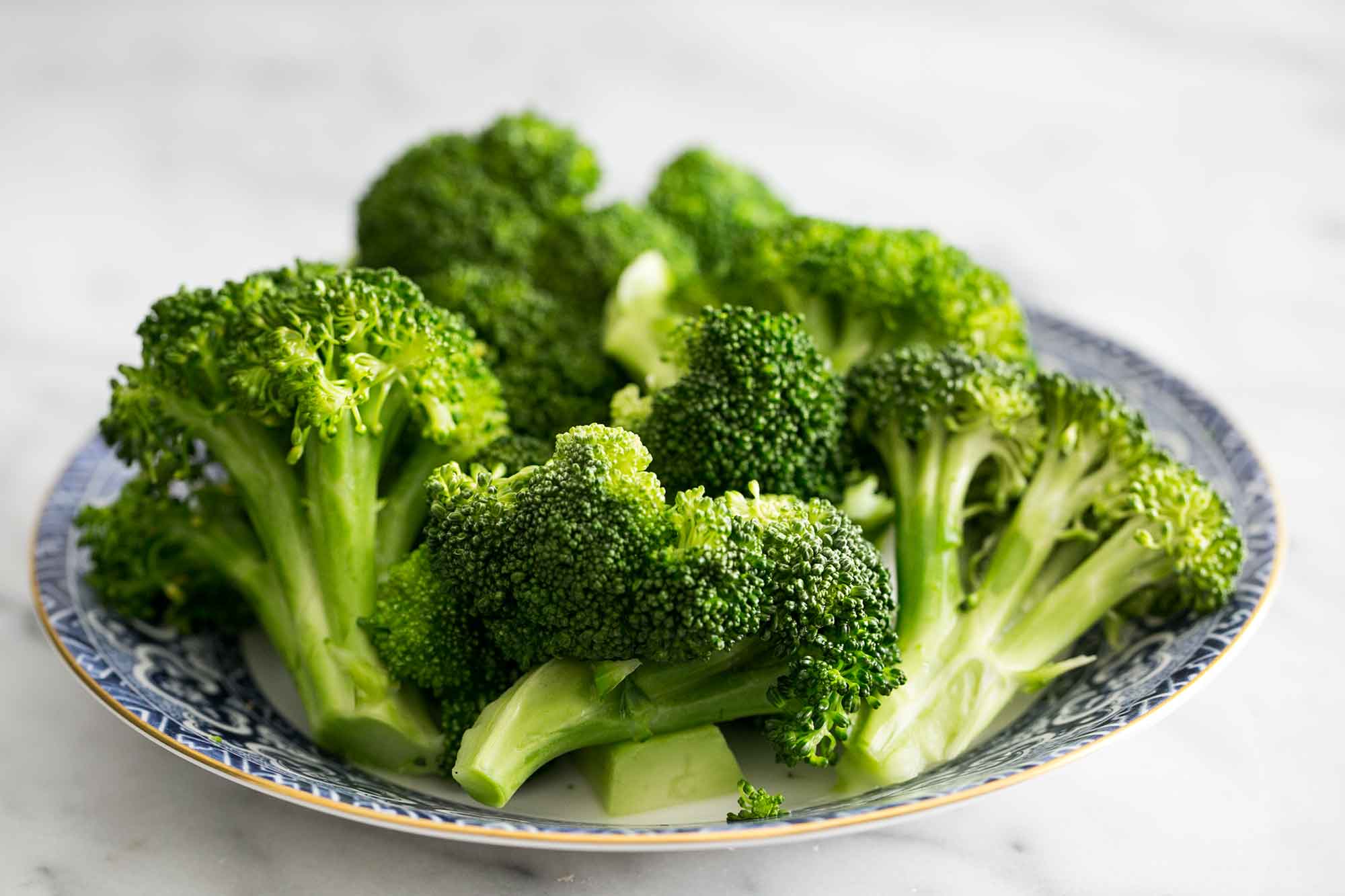
Broccoli
Carrots
Bugs Bunny’s favorite treat, the carrot, has a reputation for helping out with your vision. However, they’re also quite healthy for your heart! The vitamins and nutrients in carrots can help prevent cancer, heart disease, and strengthen bones and overall cardiovascular health.
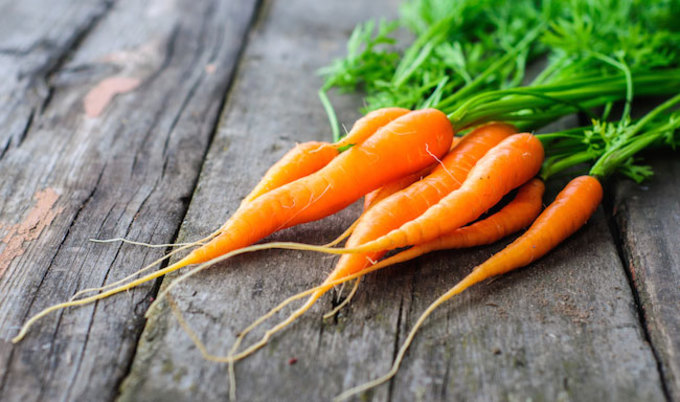
Carrots
Chicken
Chicken is most likely already part of your diet, which is a great thing! Chicken contains a lower level of cholesterol and saturated fat than red meat, which makes it a great alternative that is still high in protein and quite filling. Chicken breasts are especially rich in protein!
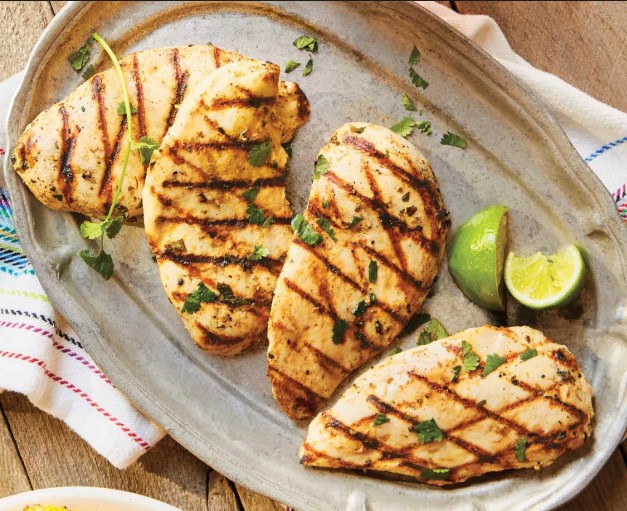
Chicken
Kiwi
Kiwis are delightfully tart and sweet, bursting with freshness and a fun texture with its tiny little seeds. Kiwi contains potassium, copper, magnesium, and polyphenols. This allows the fruit to aid in preventing blood clots, leading to better heart and cardiovascular health.
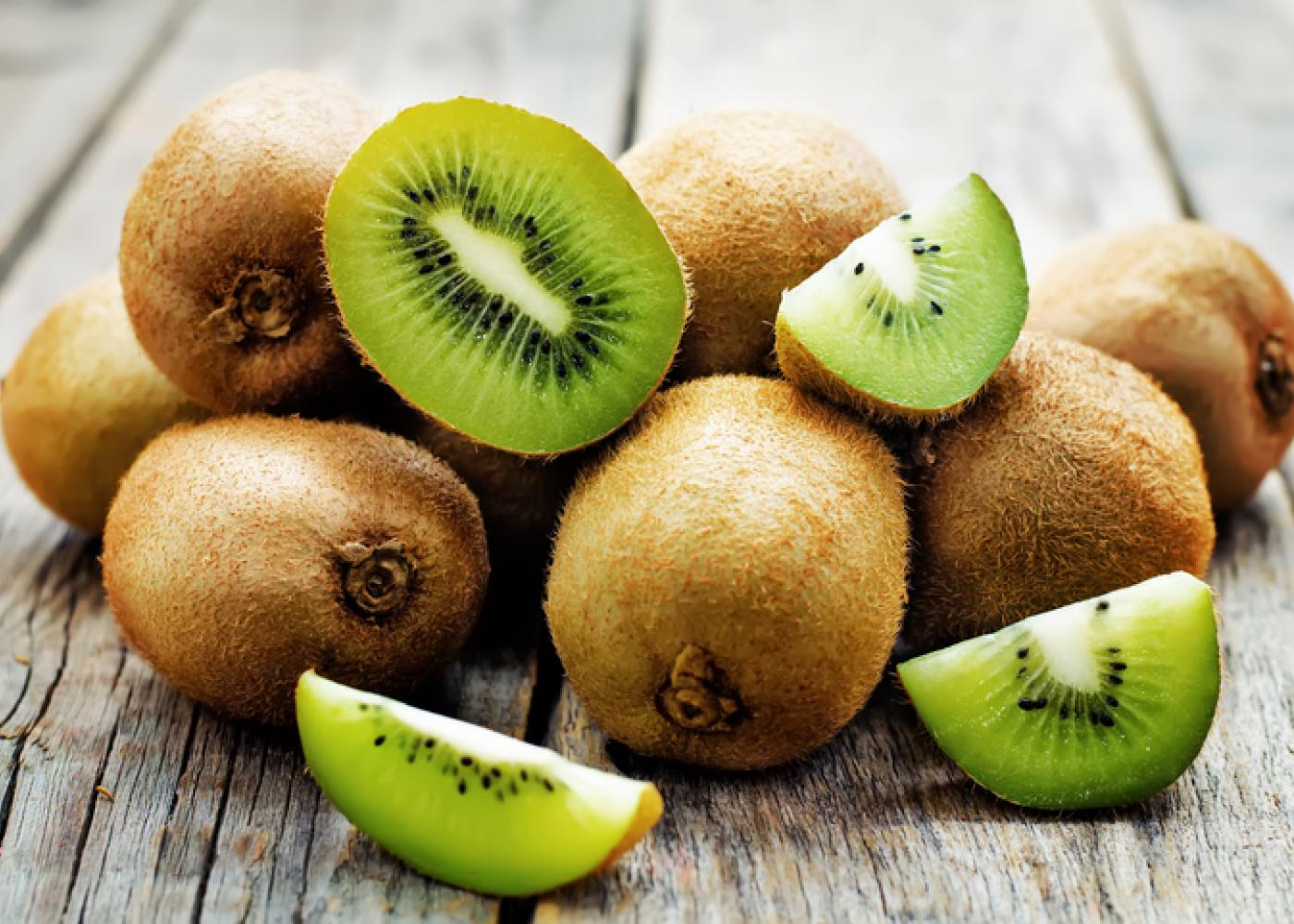
Kiwi
Legumes
The legume category as a whole is full of options that are beneficial towards maintaining heart health. In addition to being a great source of protein, legumes contain high levels of potassium. Legumes are also recommended in the DASH diet, which aims to promote optimal heart health and low blood pressure.
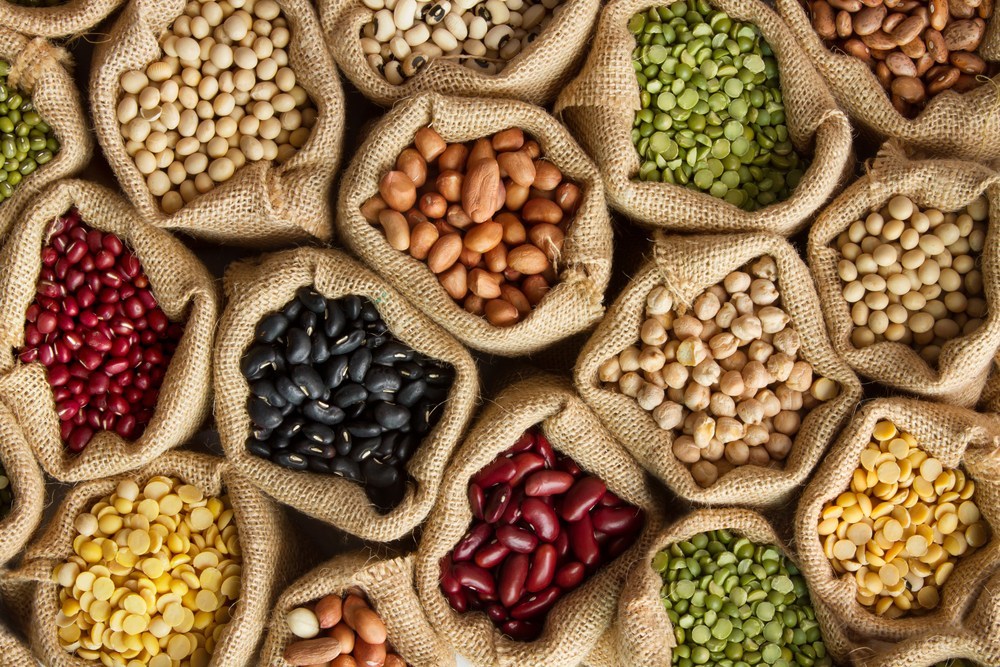
Legumes
Mackerel
For those of us who are tired of cycling salmon and tuna, mackerel is another great option for fish! Mackerel is an amazing source of Omega-3s an antioxidants. Mackerel aids in reducing the risk of cancer and cardiovascular issues.
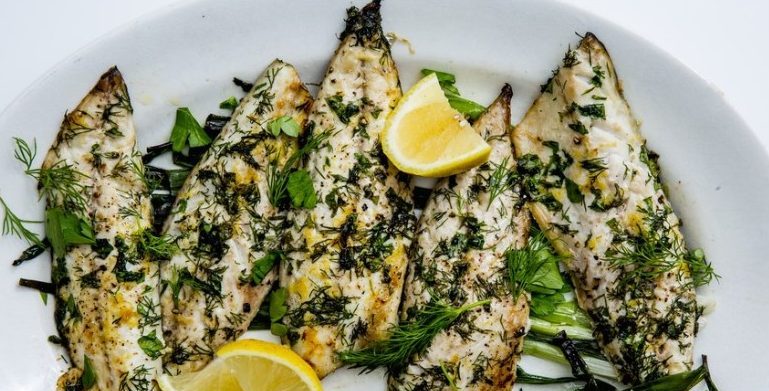
Mackerel
Cashews
Cashews are the perfect snack to satisfy crunch cravings! They contain monounsaturated fats which help increase HDL cholesterol levels (the good kind!) and lower LDL cholesterol (the bad kind!). The antioxidants found in cashews also contribute to the prevention of cellular damage.
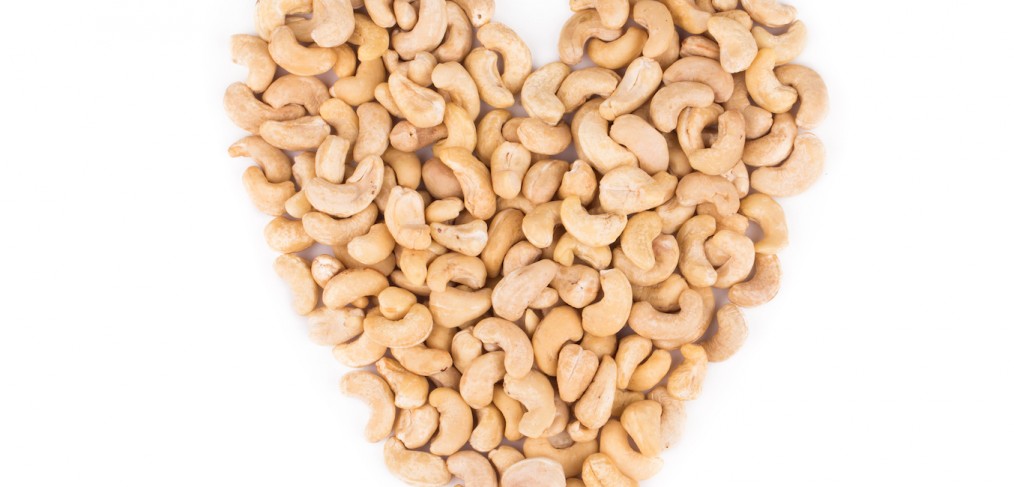
Cashews
Oatmeal
Oatmeal is one of the best options for a quick and hearty breakfast. Oatmeal is a great source of fiber and has a low glycemic index, which is perfect for those with diabetes. Oatmeal also helps avoid clogged up arteries, meaning improved heart health!
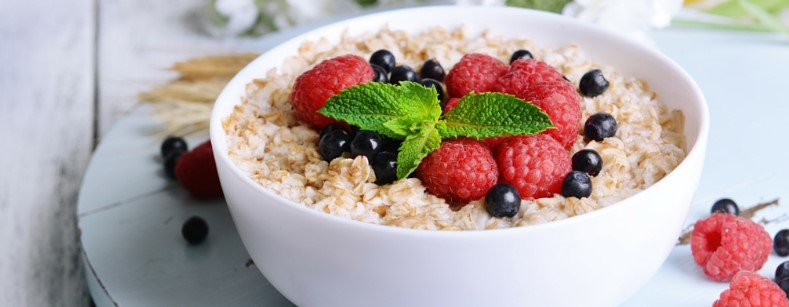
Oatmeal
Beans
Beans, of all varieties, are an excellent source of fiber. Additionally, they contain a significant amount of protein and low amount of fat. Beans also contain phytochemicals which are essential for avoiding heart disease.
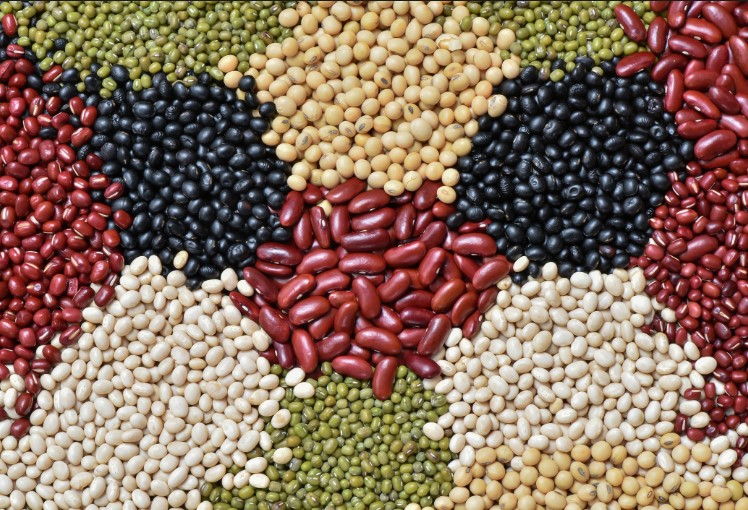
Beans
Pears
In addition to being delicately delicious, pears are a great source of fiber and antioxidants. That means that eating pears is a great way to help reduce the risk of heart disease and can help reduce cholesterol and high blood pressure.
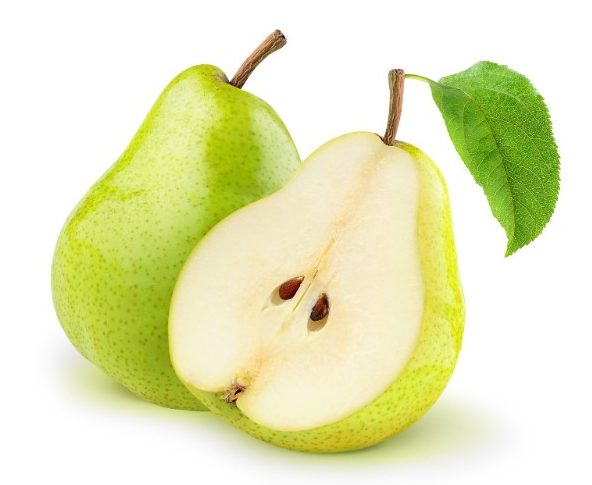
Pears
Asparagus
Asparagus is one of those veggies we know we’re supposed to eat, but we tend to avoid. However, eating asparagus is a great idea because it is a great source of fiber, vitamins, and minerals. It also is great for digestive health, helps avoid the risk of high blood pressure, and helps fight against several diseases.
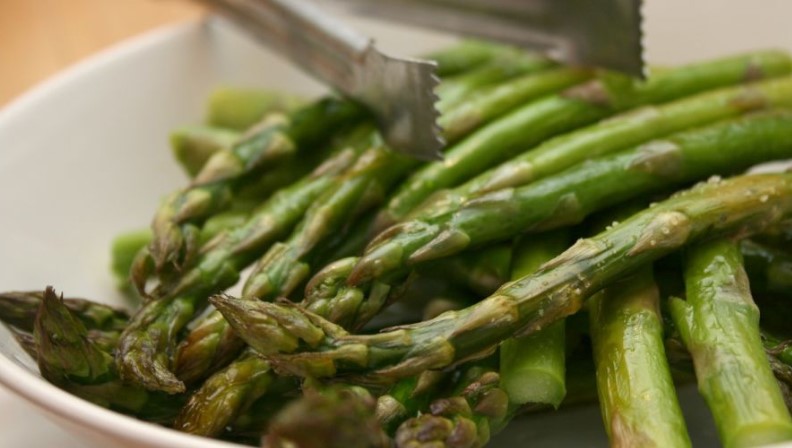
Asparagus
Quinoa
Quinoa has truly come into vogue in the food world, and with good reason. The grain contains about twice the amount of fiber of other grains and is loaded with essential amino acids as well as vitamins and minerals. It helps promote weight loss and maintenance as well as cardiovascular health in general. Quinoa can also help improve cholesterol and blood sugar levels.
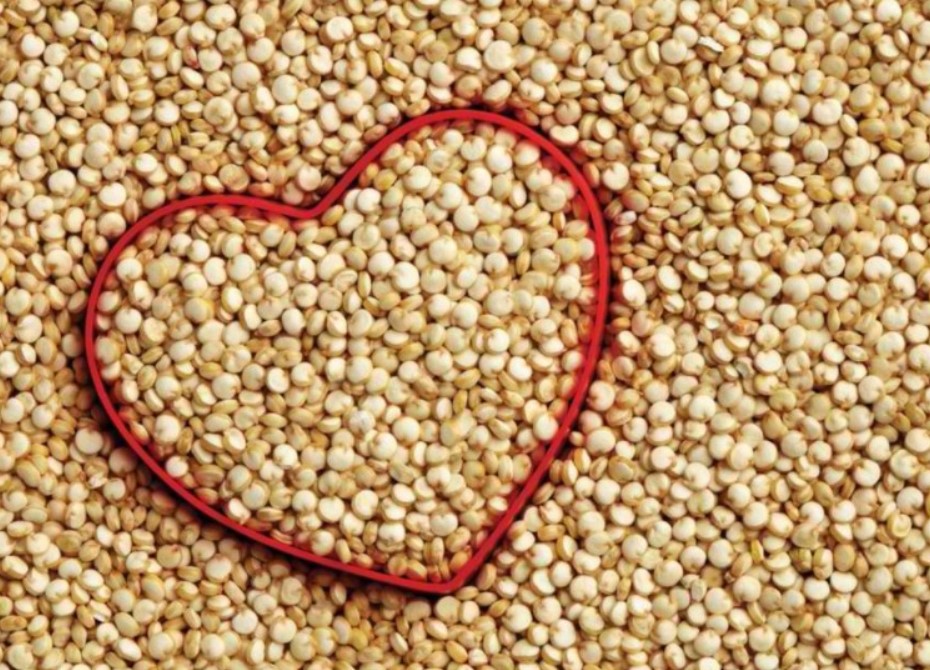
Quinoa
Spinach
Popeye the Sailor Man always reached for a can of spinach in order to keep his muscles strong, and he certainly knew what he was doing. Spinach contains vitamin K, which aids in developing strong bones and preventing blood clots. You will also find high levels of potassium, folate, fiber, and lutein in spinach.
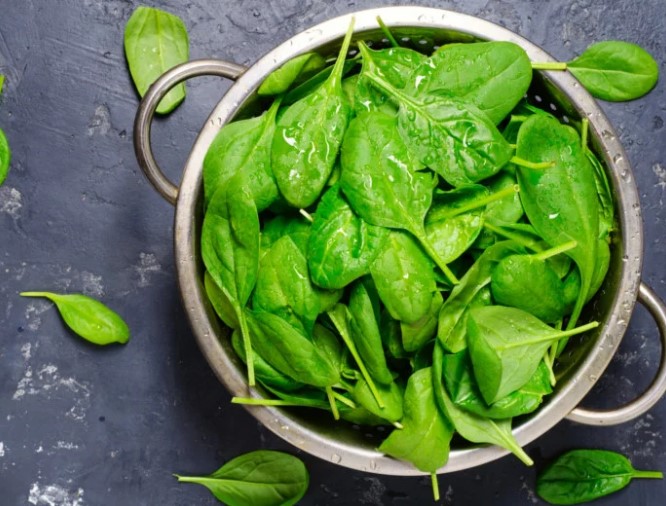
Spinach
Strawberries
Strawberries are the perfect snack or dessert as they are sweet and juicy but also packed full of health benefits. Strawberries are low in calories and are a good source of vitamin C. There have also been studies that show that the red berries can help loosen clogged arteries and help prevent plaque buildup.
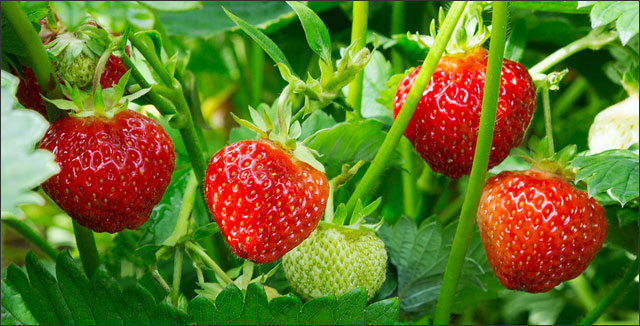
Strawberries
Sweet Potato
Sweet potatoes are a great option if you’re craving something sweet and creamy. They’re a great source of potassium, which means that they’ll help your body reduce blood pressure and ensure fluid balance.
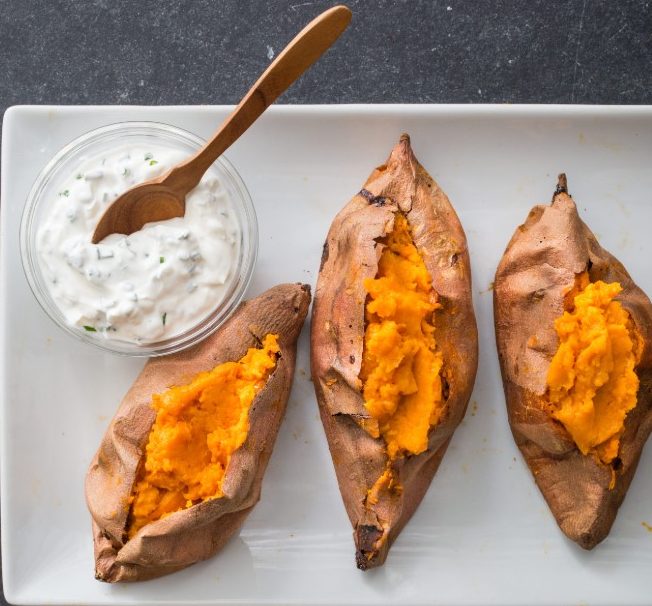
Sweet Potato
Walnuts
Walnuts are an amazing source of our favorite fatty acids, Omega-3s! More specifically, they contain alpha-linolenic acid (ALA). This means that walnuts are a great choice for helping lower blood pressure, improve cholesterol levels, and maintain overall good heart health.
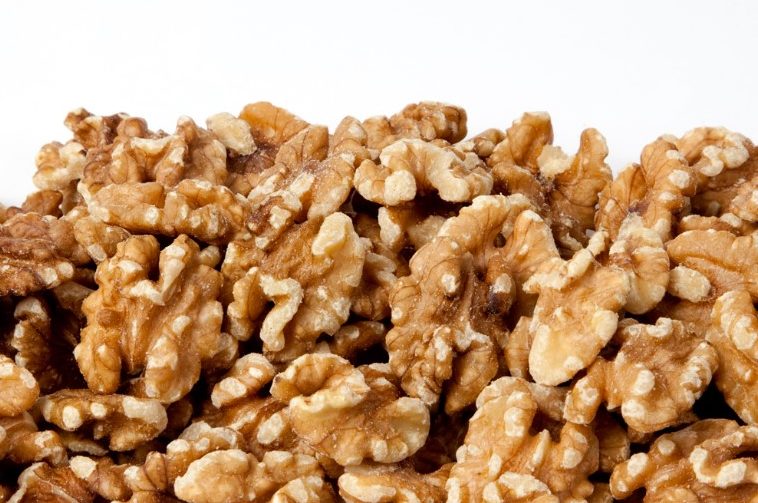
Walnuts
Watermelon
Watermelon is certainly many people’s favorite fruit. We don’t blame them, it’s sweet, juicy, and so refreshing! But did you know that watermelons are also extremely good for you? As they consist of about 96% water, they’ll keep you hydrated. Additionally, they’re full of potassium, vitamins A, C, and B6, and magnesium.
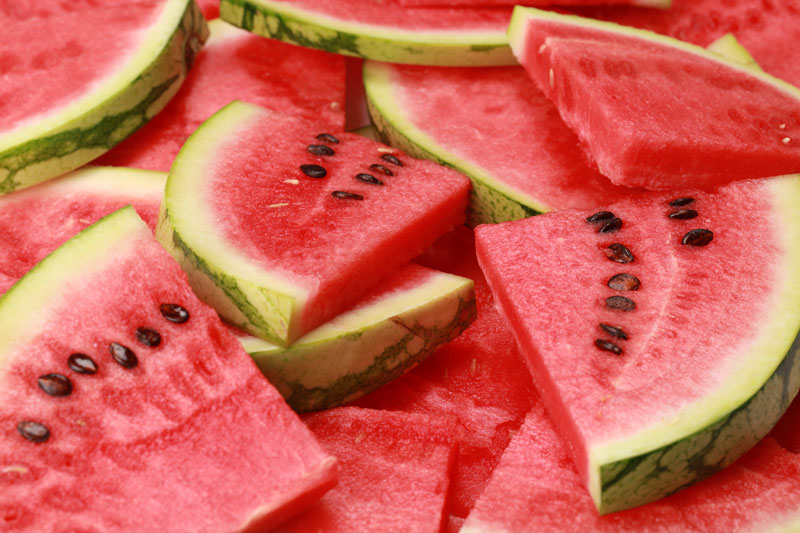
Watermelon
Bananas
Bananas are a great snack or addition to smoothies or oatmeal. The yummy fruit is known for containing potassium, but is also a great source of fiber and protein. They’re great for weight loss and keep blood pressure low, help regulate your heartbeat, and are just great for overall heart health.

Bananas
Olive Oil
Olive oil is commonly found throughout the Mediterranean, and that’s because it is quite healthy. Olive helps with reducing LDL cholesterol levels, preventing blood clots, and keeping blood sugar levels in check. Make sure you’re using extra virgin olive oil and that you’re being mindful of portions!
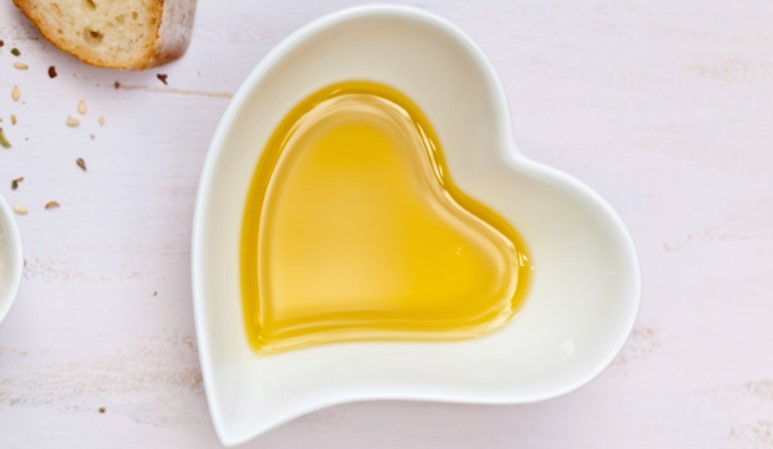
Olive Oil
Soy
Soy has seen a rise in popularity, especially as people become more conscious of their consumption and are trying to reduce the amount of meat they are consuming. Therefore, soy has played a part in replacing a lot of meat-centric meals. Soy is a great source of fiber, Omega-3s, and protein.
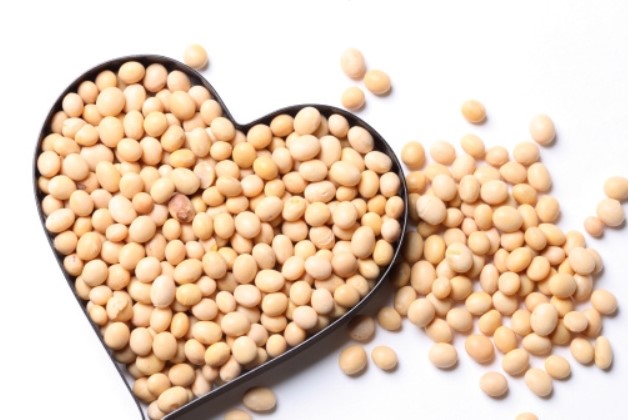
Soy
Apple Cider Vinegar
Apple cider vinegar is one of the most recommended substances in order to promote a healthy lifestyle! Experts suggest diluting one tablespoon of the vinegar with water and drink it before each meal. ACV helps achieve weight loss, prevent hear disease, and keep blood pressure low.
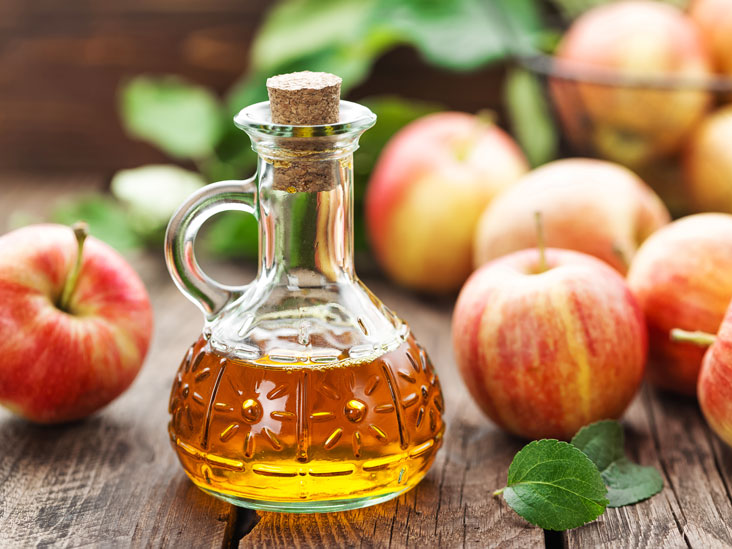
Apple Cider Vinegar
Black Beans
Beans are hearty, filling, delicious, and inexpensive. On top of all of that, they’re also quite good for you! Beans are full of potassium, fiber, vitamin B6, folate, and phytonutrients. Black beans are your perfect defense against heart disease and cholesterol.
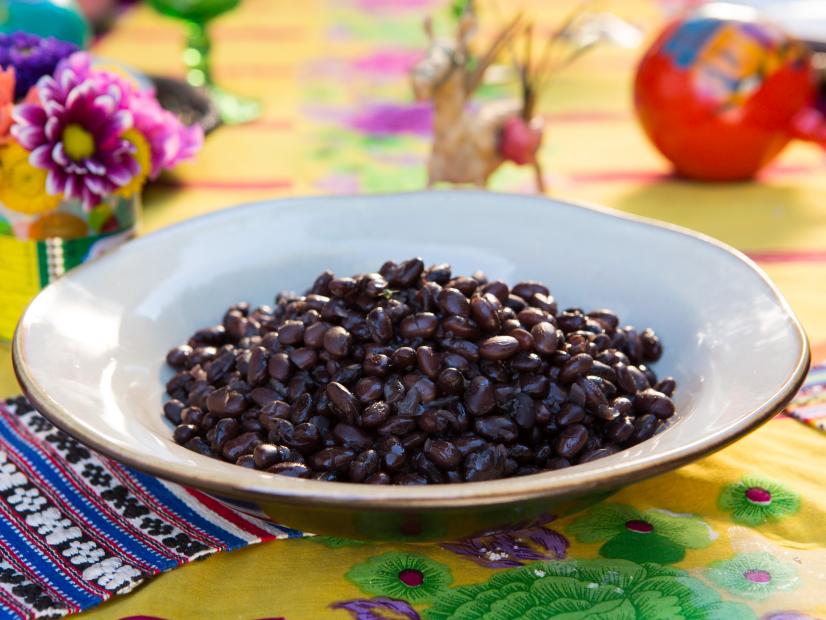
Black Beans
Reduced Fat Yogurt
Reduced fat yogurt is beneficial in several ways. First, it can aid as a diet stabilizer. It can also help fight against several types of cancer. Reduced fat yogurt is also helpful in keeping blood pressure low.
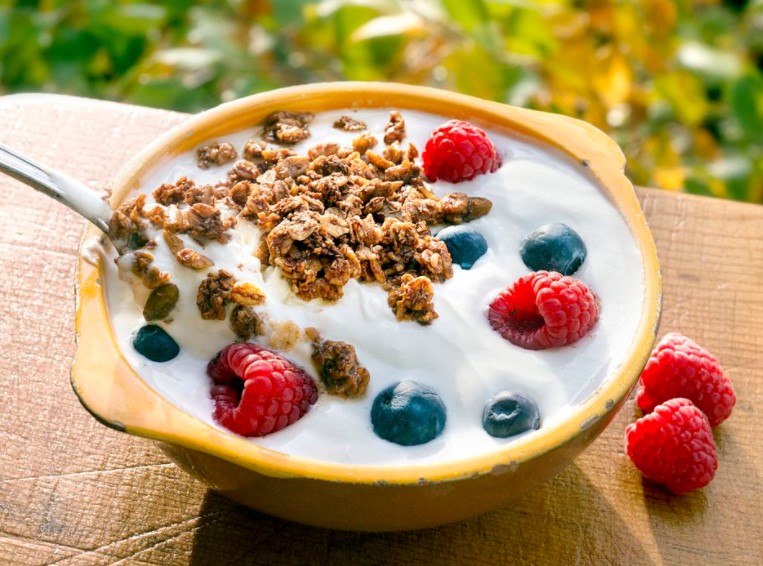
Reduced Fat Yogurt
Cabbage
Cabbage is one of the best cruciferous vegetables that you can consume in order to help prevent health issues. This is because cabbage is filled to brim with vitamin C, minerals, antioxidants, and much much more. Cabbage is also beneficial for keeping your vision at its prime.
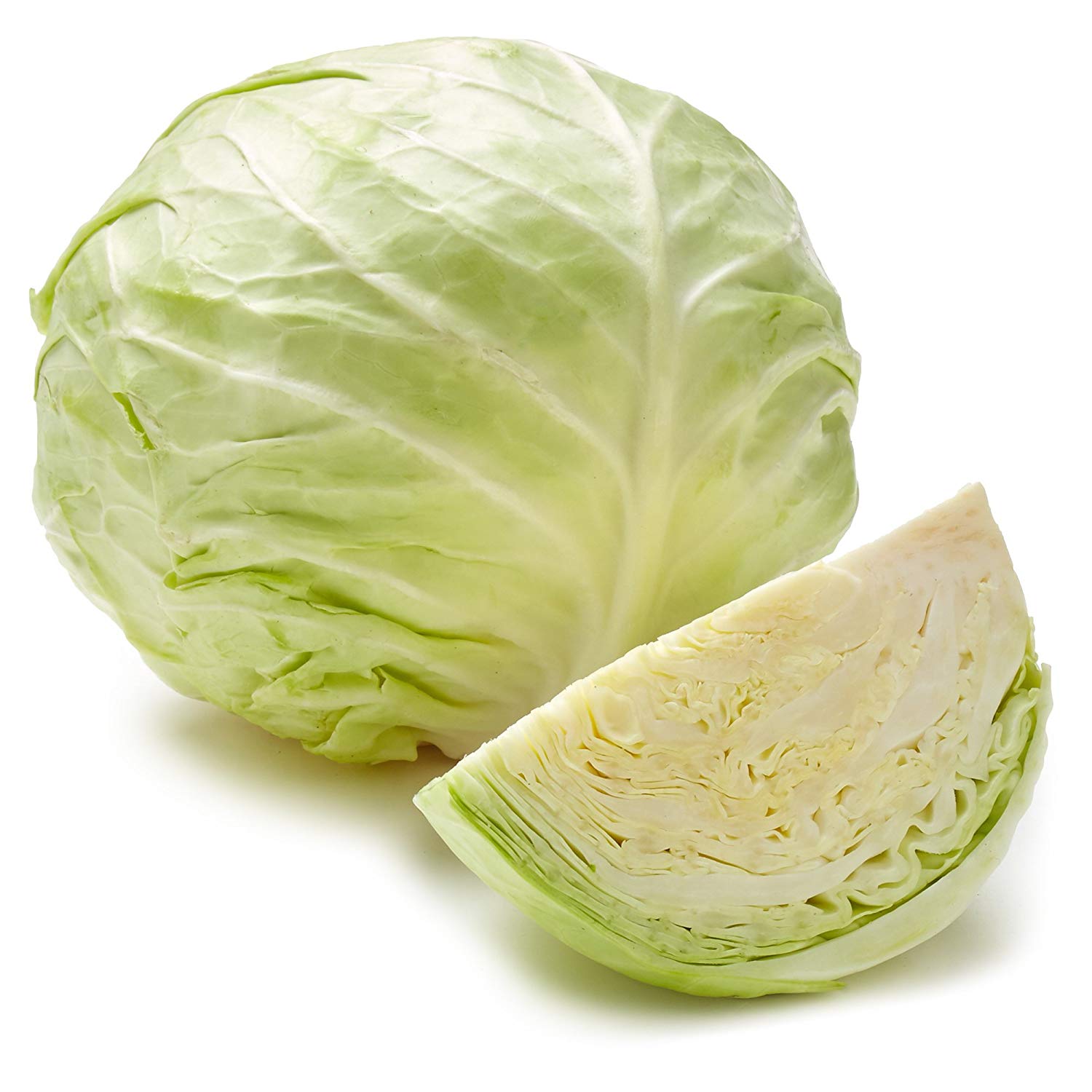
Cabbage
Brown Rice
Rice gets a bad reputation, but it doesn’t mean that it’s actually bad for you! Brown rice is a great option when it comes to healthy eating, as it contains a great deal of vitamins and minerals and also aids in fighting diabetes and heart disease.
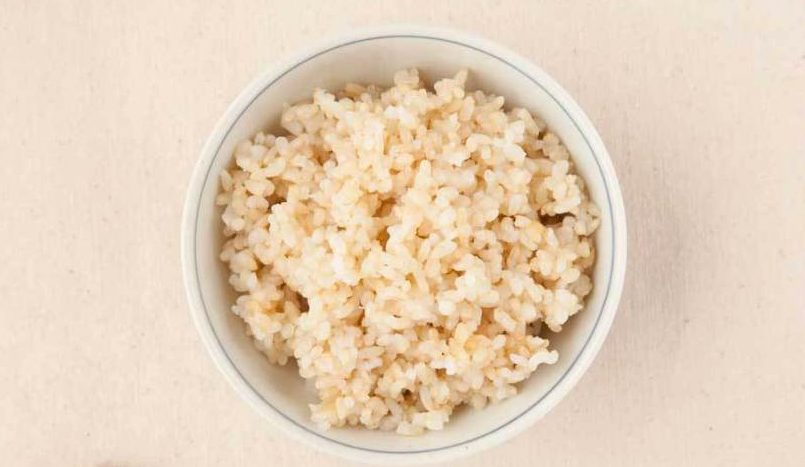
Brown Rice
Coconut Oil
Coconut oil is a great alternative if you’re trying to be more mindful of your over all health. Coconut oil is a great source of good cholesterol, which is quite beneficial for hearth health. While this is true, it’s important to still exercise portion control, as too much of any oil is never a good thing.
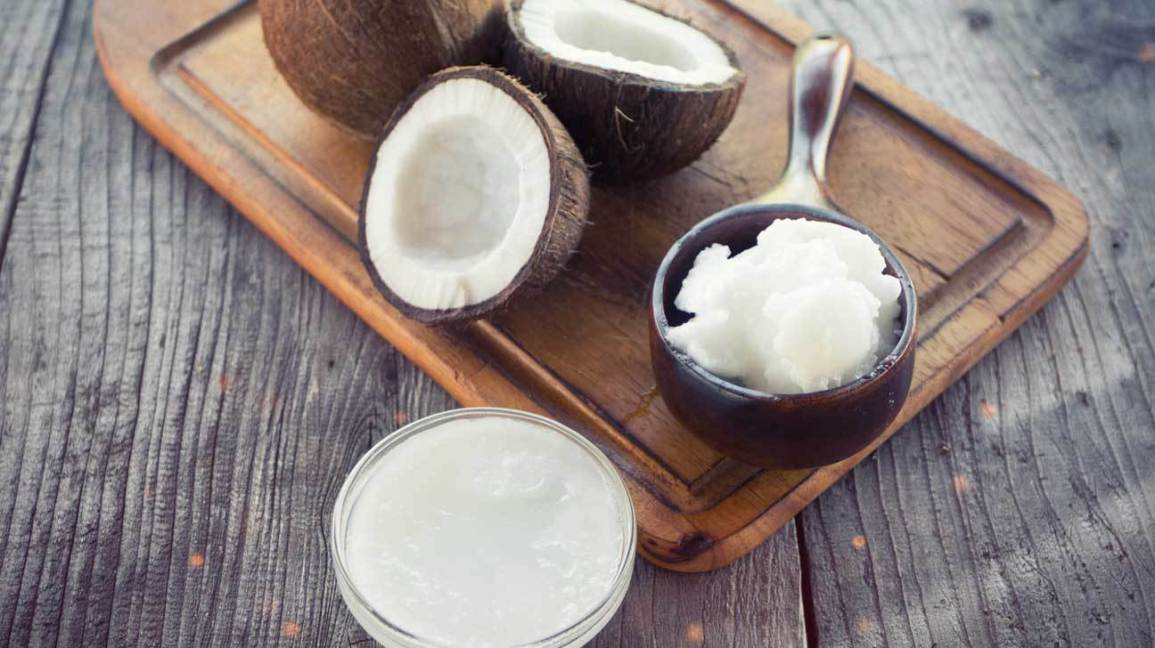
Coconut Oil
Cauliflower
Cauliflower is a wonderfully versatile and can be enjoyed in a wide variety of ways. Similar to the broccoli, cauliflower contains a lot of fiber and is low in carbohydrates. It also helps strengthen bones and detox the body.
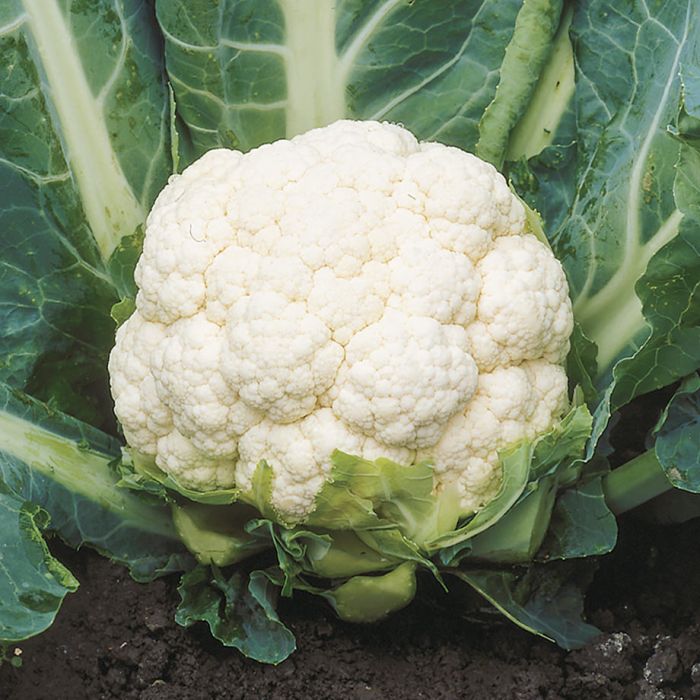
Cauliflower
Dragon Fruit
Dragon fruit is not only beautiful, it is packed with a ton of nutrition! Dragon fruit, also known as pitaya, is a tropical fruit that contains phytonutrients, calcium, carotene, vitamins C and B, and polyunsaturated fatty acids. Best of all, it adds a gorgeous color to any fruit smoothie!
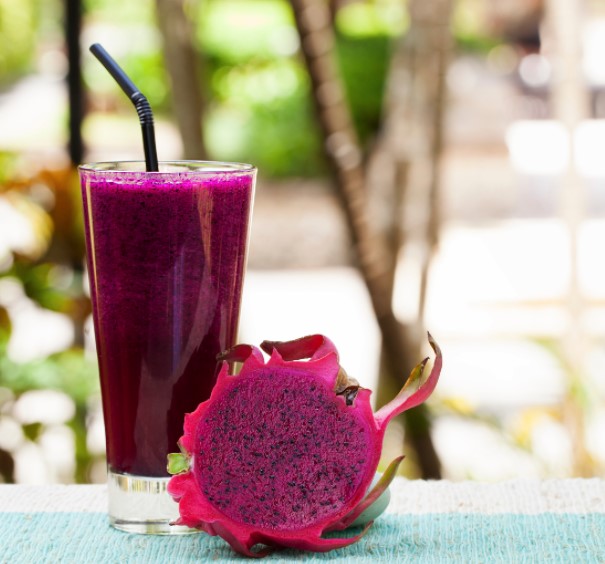
Dragon Fruit
Pistachios
Pistachios are one of the most beloved nuts for a reason. They are low calorie yet full of nutrients and antioxidants. They’re also low in cholesterol and help foster heart and gut health. Next time you’re in need of a healthy snack, reach for some pistachios!
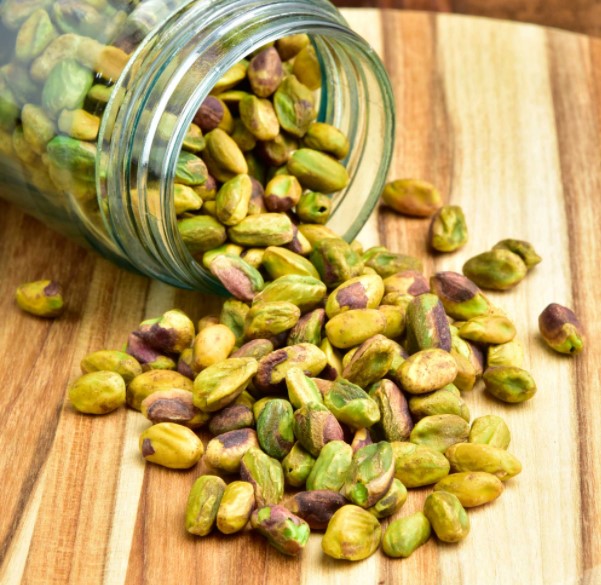
Pistachios
Pumpkin
Pumpkins are not only a fun Halloween decoration, they’re also quite healthy! These gourds are full of not only pumpkin seeds that are great for roasting, but also pro-vitamin beta-carotene, vitamin C, potassium, fiber, and phytoestrogens. They also help keep blood pressure and bad cholesterol low.
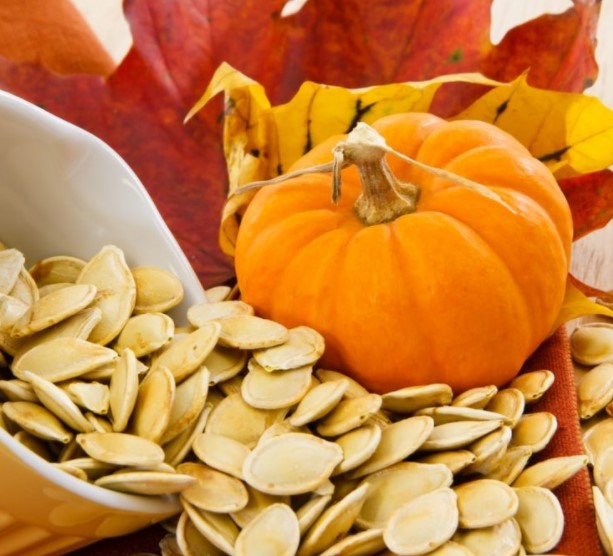
Pumpkin
Tomato Sauce
Not all tomato sauces are created equal. While the jarred variety is convenient, many times these packaged sauces are full of sugar. Home made tomato sauce is simple to make, and is heart healthy as well! Tomato sauce helps promote heart health.
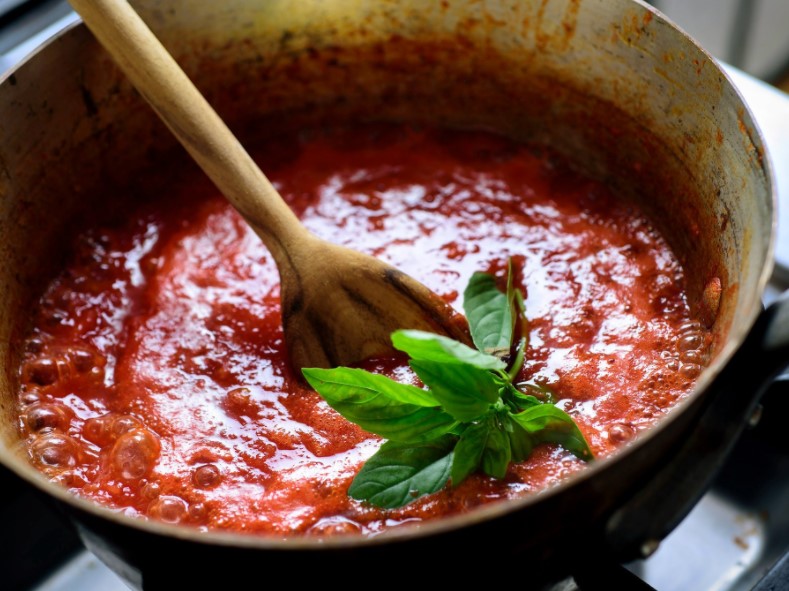
Tomato Sauce
Brussel Sprouts
Brussel sprouts have spent too many years stuck with a terrible reputation, but if prepared correctly, these insanely healthy sprouts can be super delicious! They’re full of protein, potassium, iron, and glucosinolates, which are all incredibly healthy.
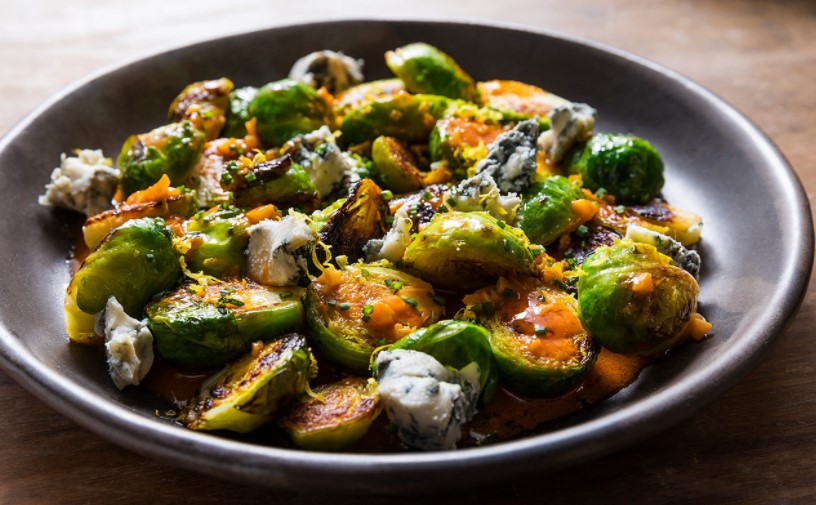
Brussel Sprouts
Olives
Olives come in so many varieties, it’s impossible not to find a kind you’ll like. Olives are a great choice of snack or addition to salads, as they contain monounsaturated fat, antioxidants, and plenty of nutrients. They’re even known to help promote weight loss.
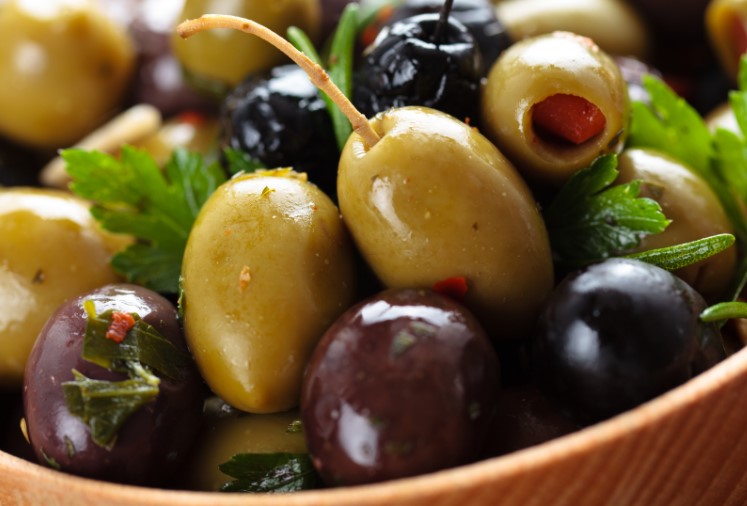
Olives
Cinnamon
Cinnamon has a knack for making any dish just a little bit more delicious. This spice is not only delicious for enhancing both sweet and savory dishes, but it also enhances your health. Cinnamon contains calcium and fiber, and helps rude glucose and cholesterol levels.
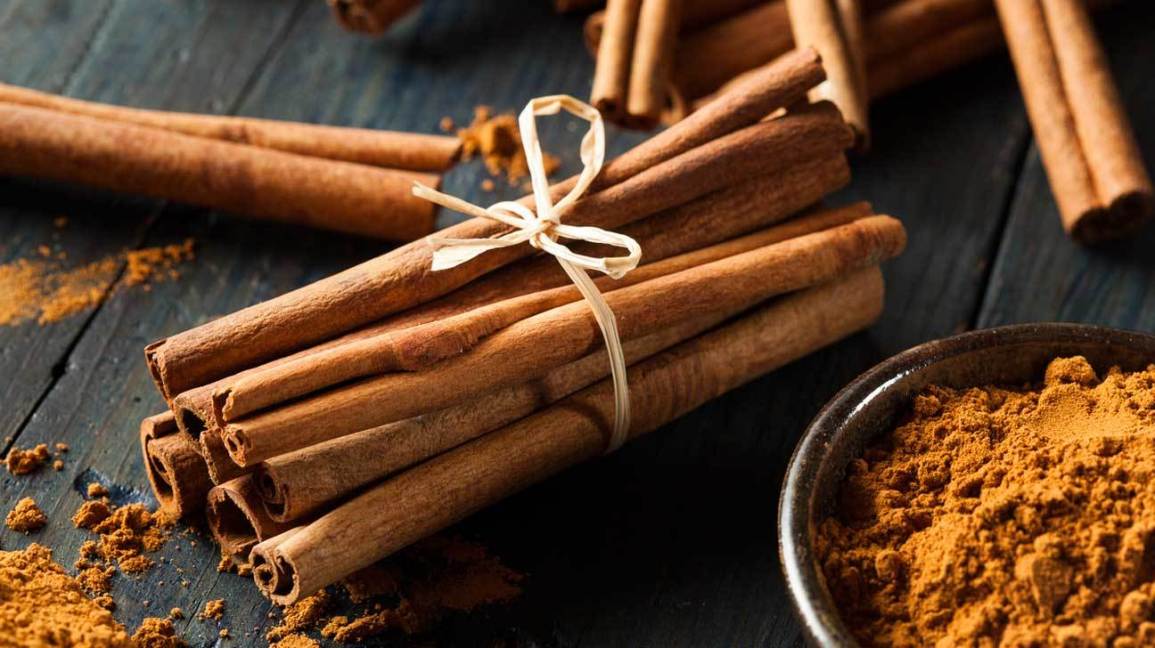
Cinnamon
Edamame
Edamame is the perfect snack, as it is delicious and nutritious. Edamame is the preparation of immature soybeans in their pod. Usually the pods are steamed and sprinkled with salt, resulting in a delicious snack. Edamame has plenty of protein and helps reduce cholesterol and fight heart disease.
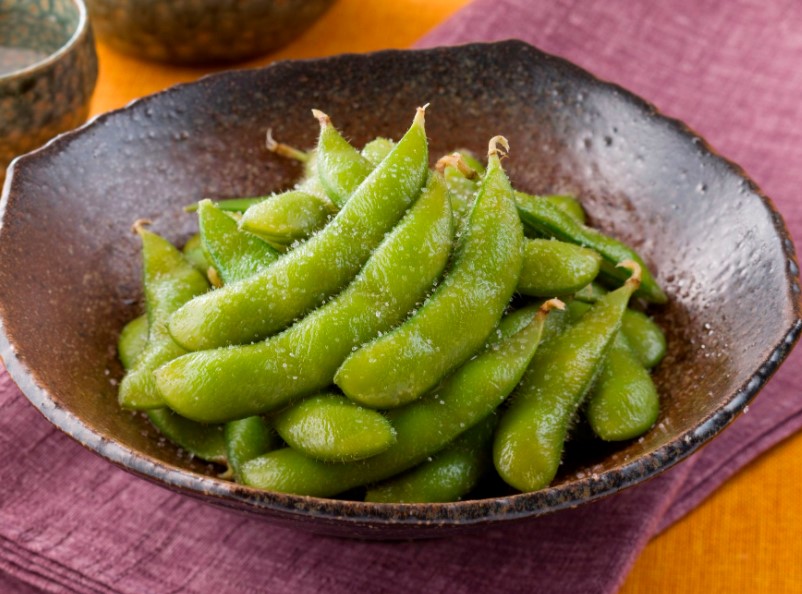
Edamame
Collard Greens
Collard greens are a staple in the Southern region of the United States, and we certainly know why. These greens are delicious and insanely healthy, too. Collard greens are a mixture of kale, bok choy, Brussels sprouts, broccoli, cabbage, and rutabaga. All of these greens help fight heart disease, diabetes, and also obesity.
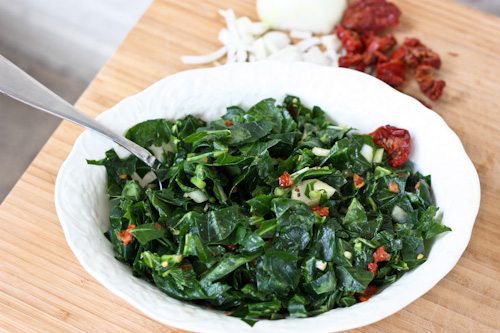
Collard Greens
Water
We all know that we should always be drinking more water, but do we know exactly why? Well, water aids in dissolving minerals and nutrients, allowing them to be more easily accessed by the body. Water is also crucial to keep your heart working, as staying hydrated helps the heart stay in order.

Water
Tuna
There’s almost nothing as delicious as a fresh tuna steak. Luckily, it’s also incredibly healthy! Tuna is packed with a ton of Omega-3 fatty acids as well as amino acids. Healthy and delicious? Sounds like the perfect meal to us.
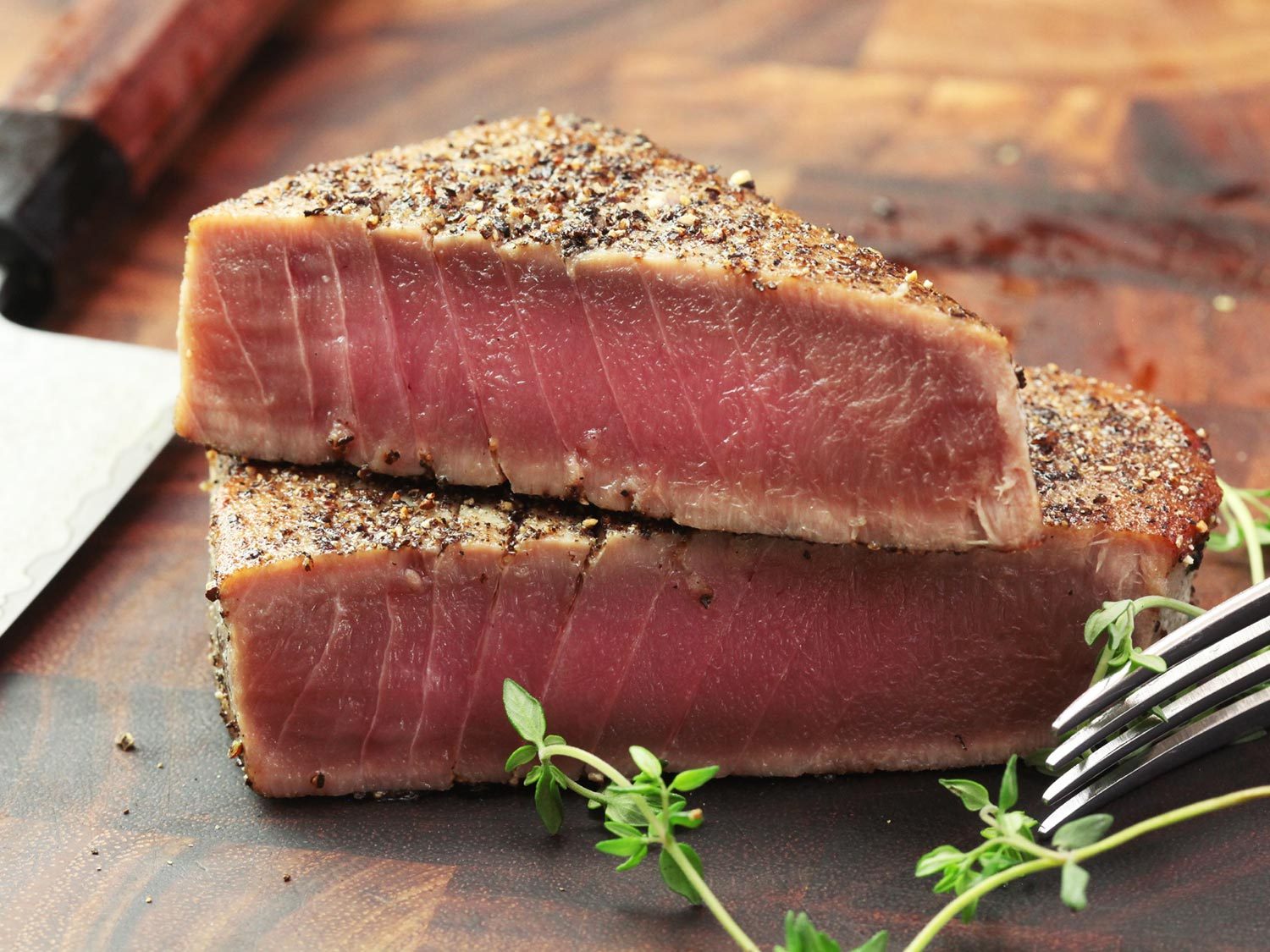
Tuna
Raspberries
Raspberries are one of the most delicious berries out there! These sweet and tart red berries are full of vitamin C as well as manganese. They’re also full of polyphenols, which help fight against many kinds of heart diseases.
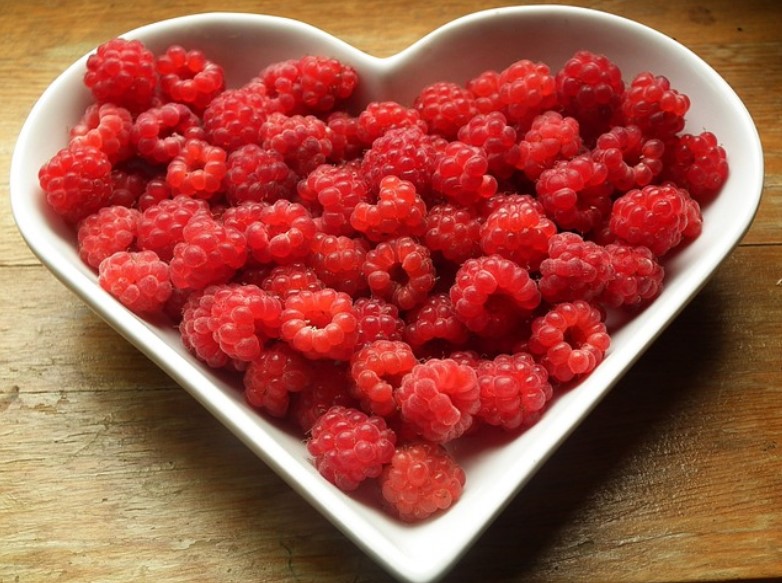
Raspberries
Brazil Nuts
Brazil nuts are a great option for a healthy and filling snack. Brazil nuts are full of nutrients and antioxidants that help fight diseases. On top of all of that, they’re pretty tasty too!
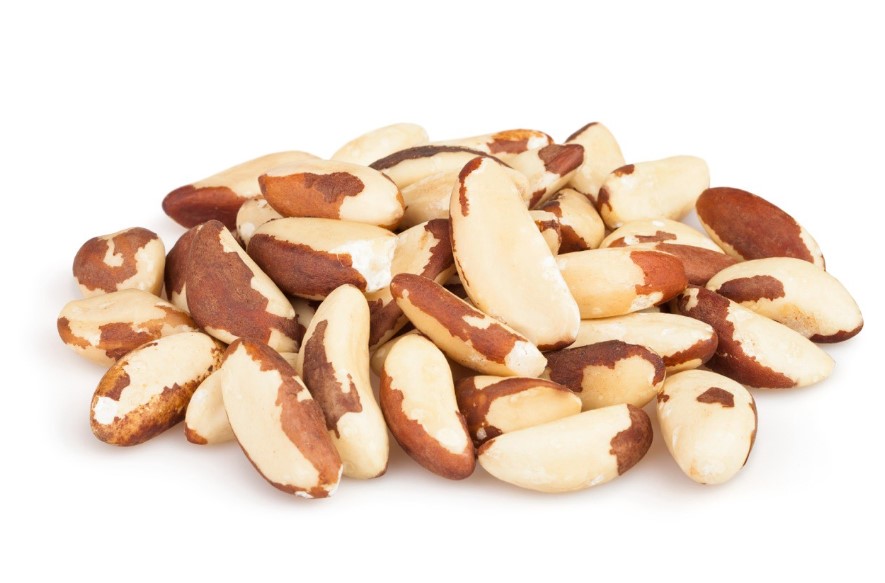
Brazil Nuts
Fatty Fish
Fish that are considered to be fatty include salmon, tuna, trout, mackerel, herring, sardines, and anchovies. All of these varieties are a great source of good fat. They’re all full of Omega-3 fatty acids, which are essential to your health.
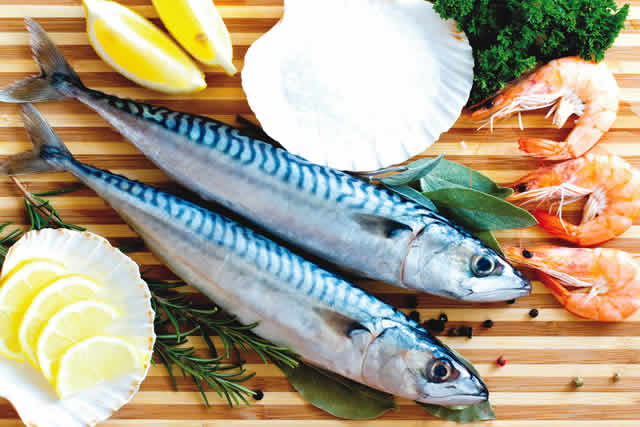
Fatty Fish
Tomatoes
Tomatoes are seriously delicious and simple to add to almost any meal. Whether in a salad, a sauce, or added to a pasta dish in cubes, tomatoes are always a welcome addition. They’re also packed full of lycopene, potassium, fiber, and vitamins C and A.
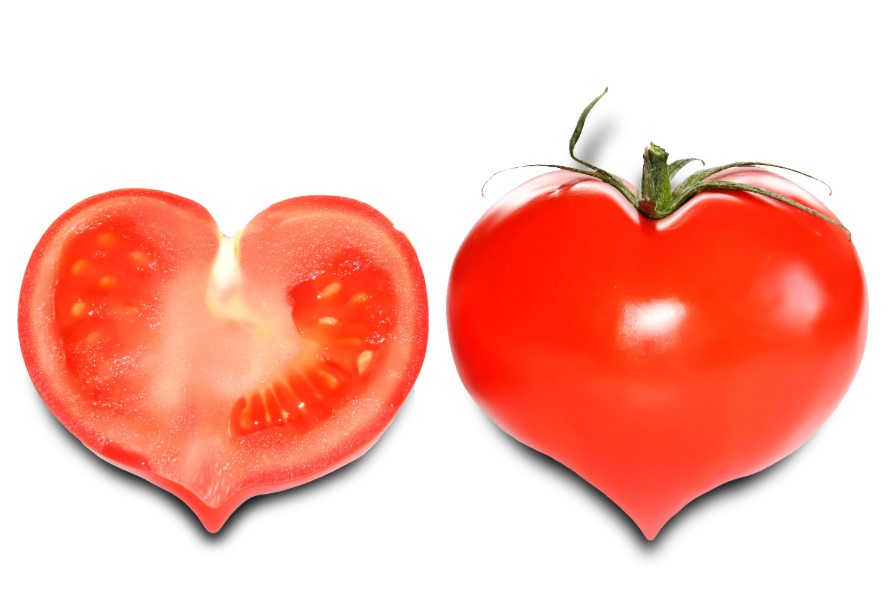
Tomatoes
Acai Berries
Acai berries are seriously having a moment in the health food industry. That’s because these yummy berries contain plenty of nutrients and antioxidants that help fight against diseases such as diabetes, cancer, and heart disease. Plus, they’re just so pretty!
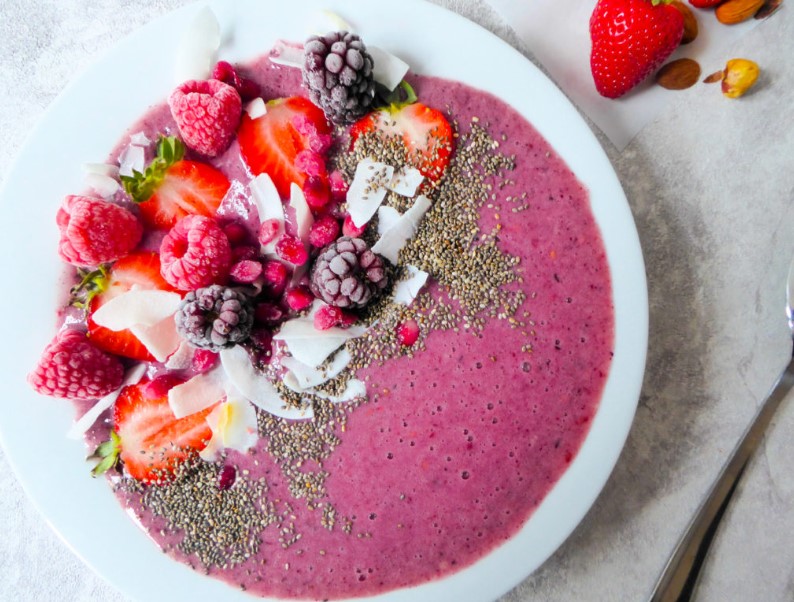
Acai Berries
Red Wine
Wine lovers, rejoice! Drinking red wine in moderation can actually be beneficial to your health. Some experts have found that red wine can help increase HDL levels and prevent the buildup of cholesterol. The antioxidants found in red wine help prevent blood clots. So feel free to reach for that glass of red every once in a while!

Red Wine
Chocolate
There’s more great news in store! Chocolate is not only good for your soul, but also your heart! Indulging in raw cacao and chocolate with a high percentage of cacao can help reduce your risk of stroke and heart disease, according to a study conducted by Harvard University. The study found that regular consumption of raw cacao helped regulate blood pressure and hypertension.

Chocolate
Sardines
Sardines are a great source of Omega-3 fatty acids, which are essential for your health. Sardines will help you reduce inflammation and triglyceride levels, as well as help increase good cholesterol. So what are you waiting for? Time to start chomping down on sardines.

Sardines
Leafy Green Veggies
Leafy greens are quite well known for being healthy, as they’re a great source of vitamins, minerals, and also antioxidants. They contain vitamin K, which helps defend the arteries and aids in proper blood clotting. They help lower blood pressure and fight heart disease.
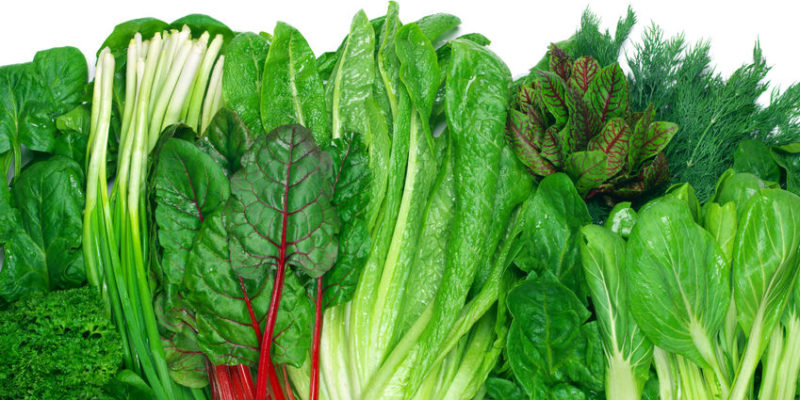
Leafy Green Veggies
Whole Grains
Whole grains contain all of the healthiest parts of grains, which include germ, bran, and endosperm. Whole grains include brown rice, oats, barley, rye, quinoa, and buckwheat. They contain a lot of fiber, which helps lower LDL cholesterol and reduce your risk of heart disease.
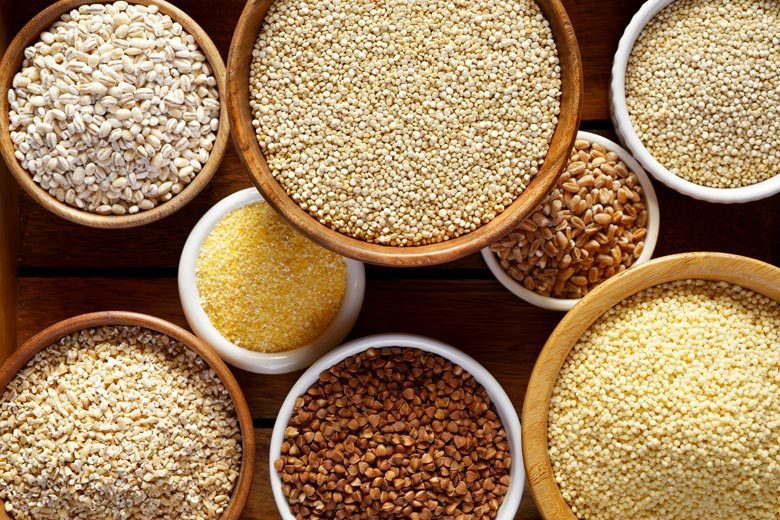
Whole Grains
Blackberries
As we’ve previously seen, berries are quite healthy fruits. The same goes for blackberries. They’re a great source of antioxidants, which help reduce oxidative stress and inflammation, thus reducing the risk of heart disease.
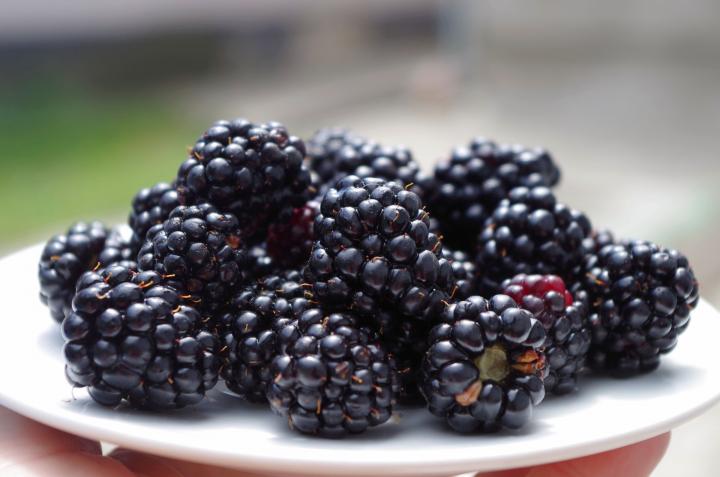
Blackberries
Fresh Herbs
A great way to add flavor to your food in a healthy way is to add fresh herbs. There are so many herbs to choose from, including oregano, rosemary, and thyme, that you’ll never run out of flavor combinations. Herbs help flavor your food without the need for salt and fat, therefore helping you make a heart healthy food choice.
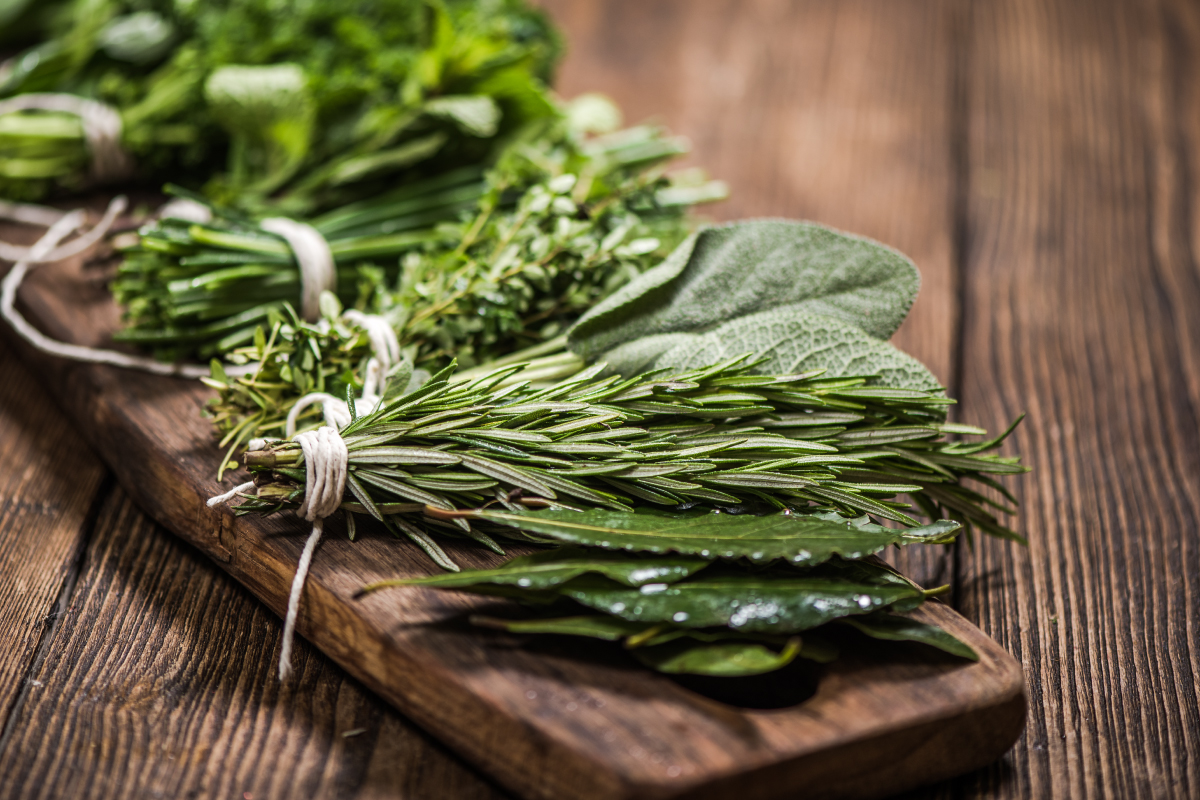
Fresh Herbs
Tofu
Tofu is not only a great option for those of us who are vegetarian, but also for those who are seeking optimal heart-health. Tofu is a great source of protein as well as heart healthy minerals, polyunsaturated fats, and fiber.
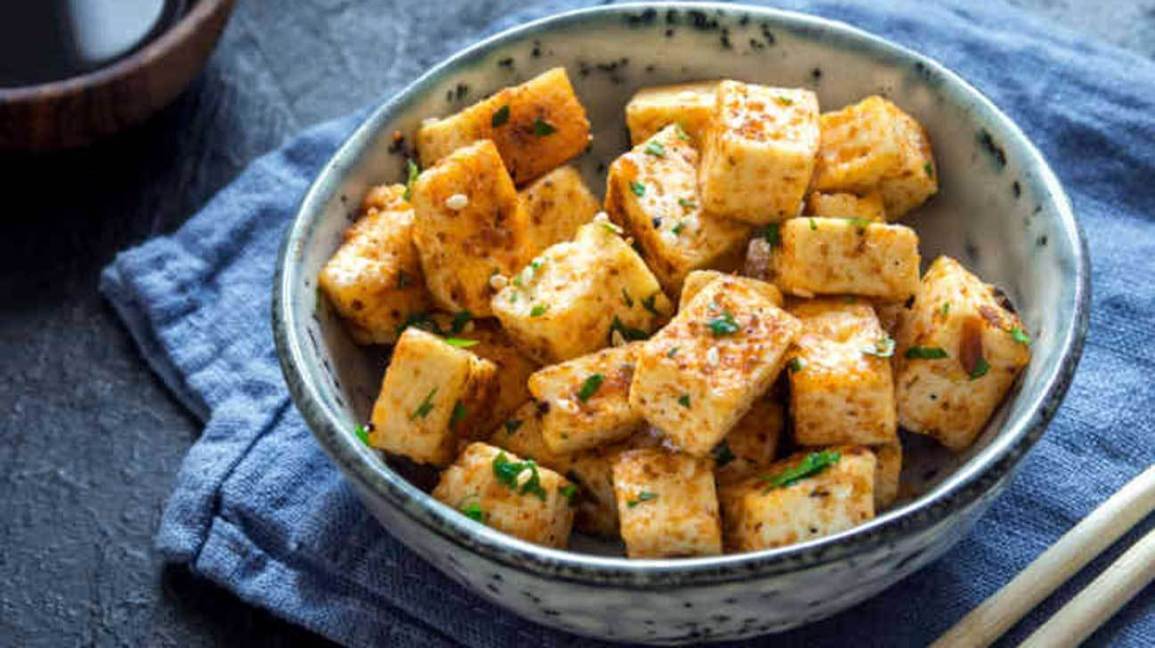
Tofu
Swiss Chard
Swiss chard is quite an underrated veggie. This leafy green contains a ton of magnesium and potassium, minerals that help keep blood pressure in check. It’s also a great source of fiber, vitamin A, and antioxidants like lutein and zeaxanthin.
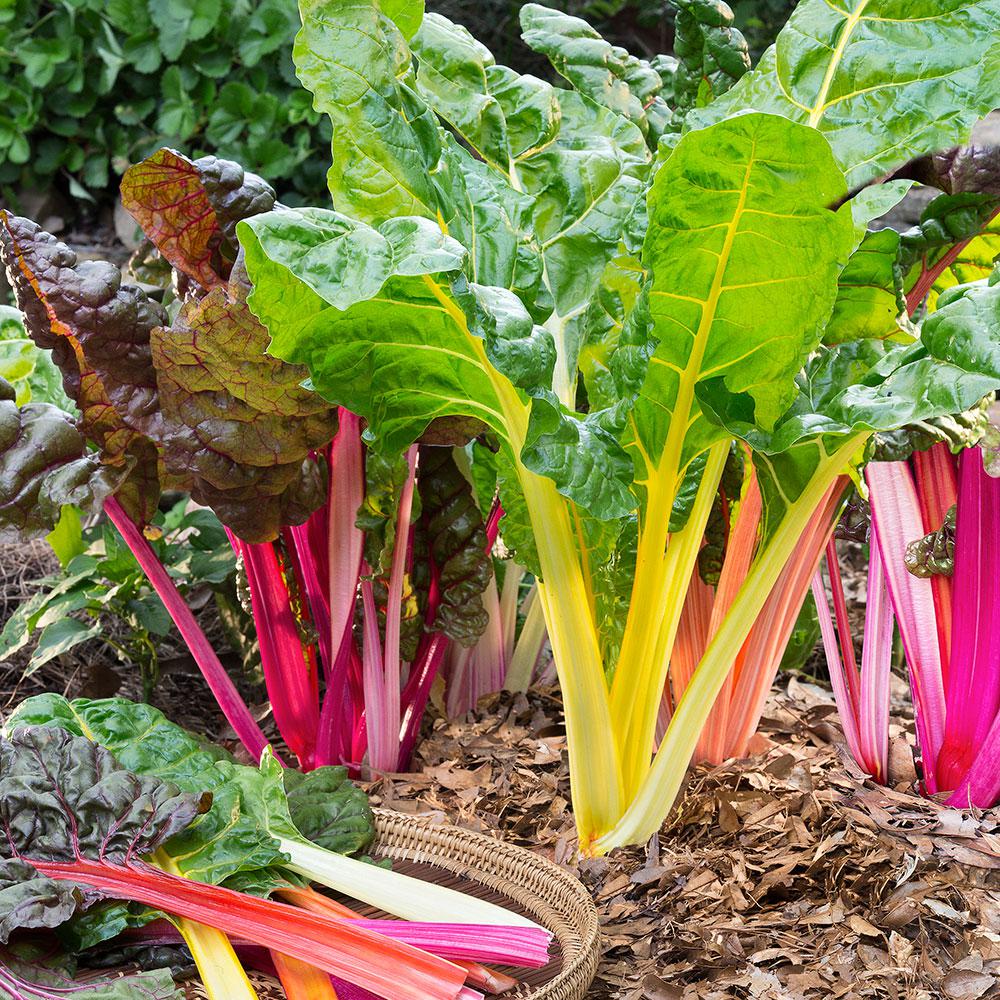
Swiss Chard
Cherries
Whichever cherries you prefer, whether it’s sour cherries, sweet cherries, dried cherries, or even cherry juice, all of these options are great for your heart. That’s because cherries are full on antioxidants like anthocyanins, which help protect your blood vessels.
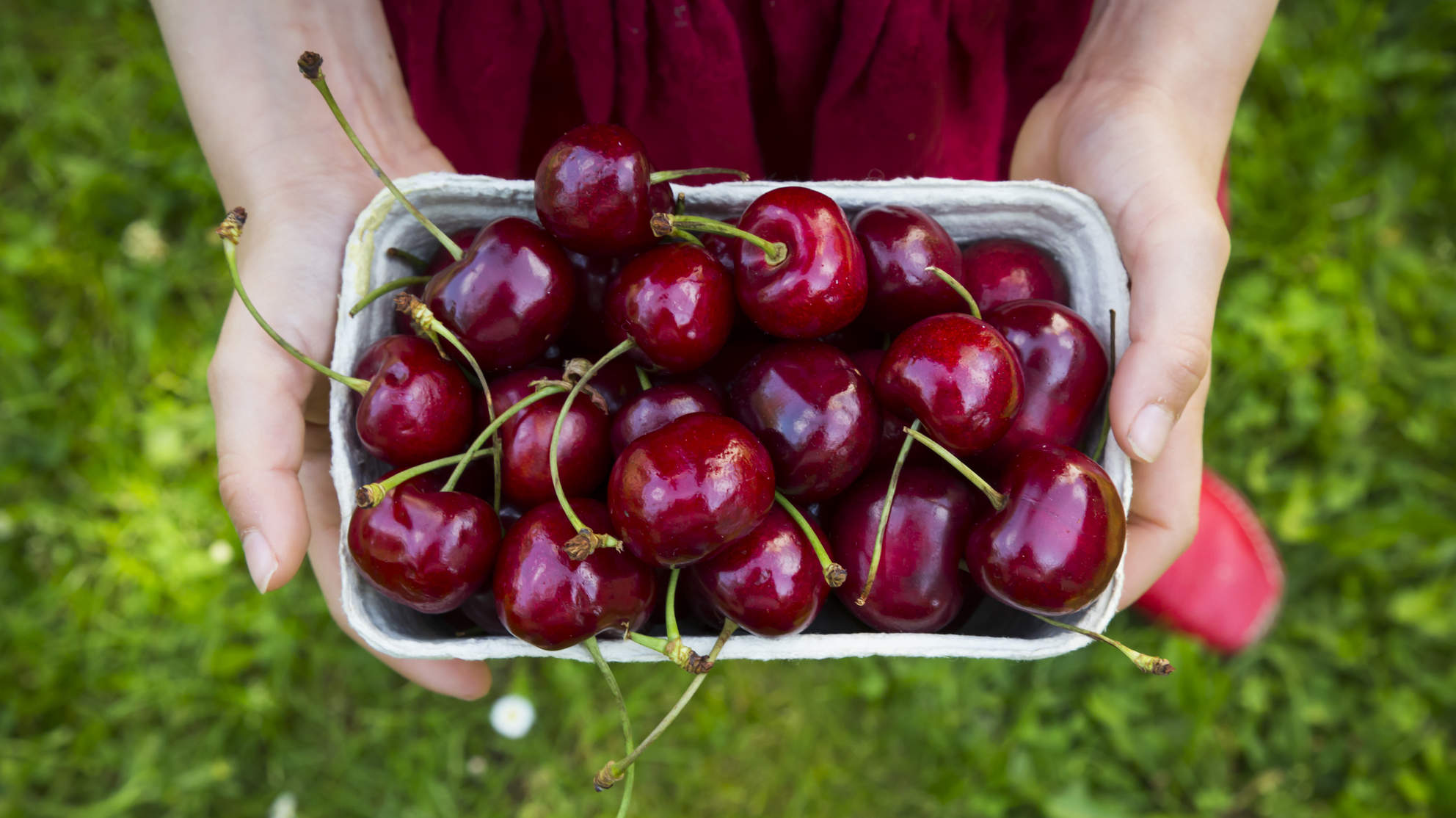
Cherries
Canola Oil
If you need to keep your heart health in mind, consider using canola oil as opposed to butter or lard, which can clog your arteries. Unsaturated fats are a much better choice for those who are heart-health conscious, and canola oil is a good option.
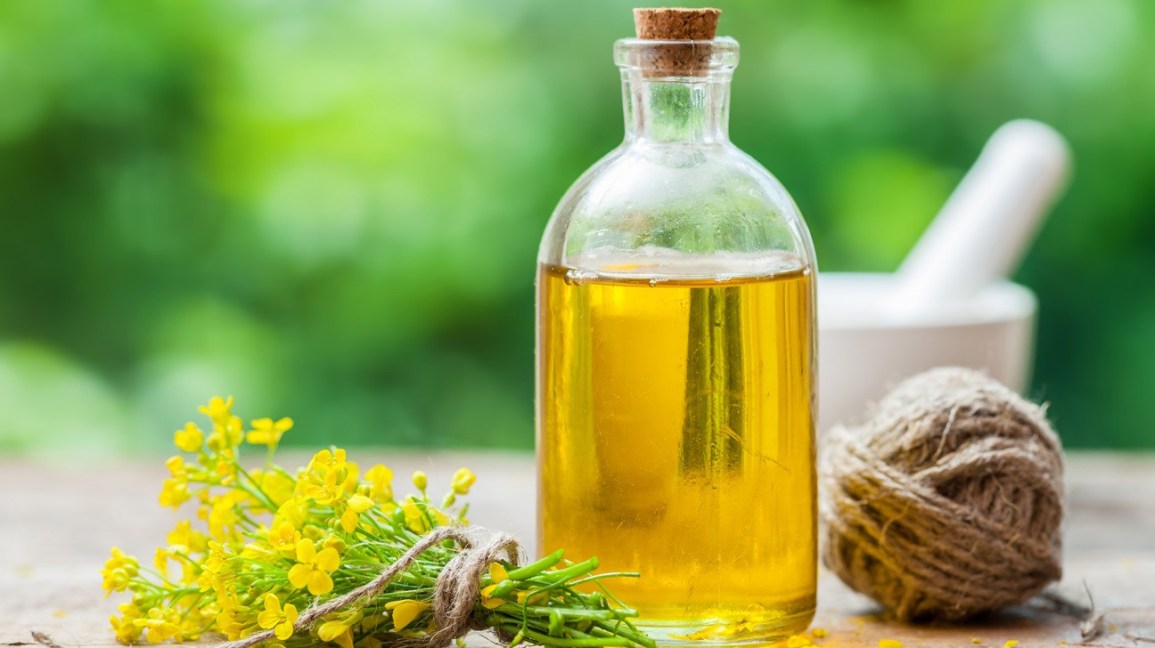
Canola Oil
Liver
If you want an alternative to fish or chicken, you should consider liver if you want a heart-healthy choice. Liver is very nutrient dense, as it is packed with iron, folic acid, copper, zinc, and chromium — all of which contribute to increasing the blood’s levels of hemoglobin, which helps keep the heart in good shape.

Liver
Buckwheat
Buckwheat’s popularity has been on the rise lately, as it’s cardiovascular health benefits have become more widely known. Buckwheat contains magnesium, copper, fiber, proteins, and rutin, all of which help improve heart health.
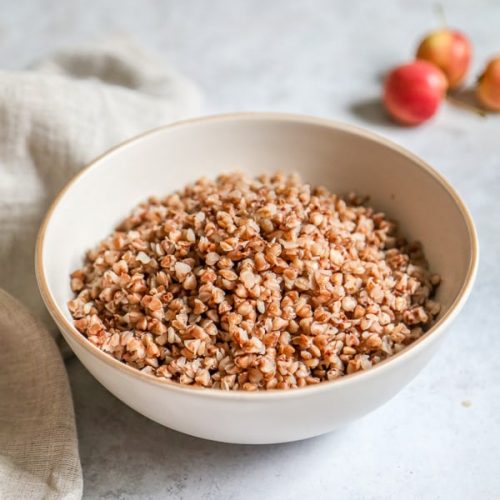
Buckwheat
Rye
Rye is one of the healthiest grains you can consume. Why, you might ask? It’s because it is whole, and contains fiber, starches, and many nutrients. Rye helps regulate cholesterol, glucose, and inflammation. So next time you choose bread, make it rye!
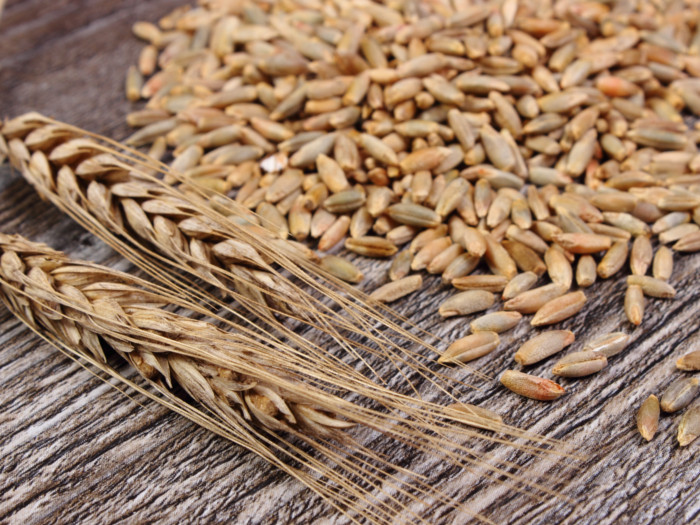
Rye
Barley
Adding barley to soups or eating it on its own is a great way to reap the benefits of this amazing grain. Barley contains potassium fiber, folate, vitamin B6, which help promote a healthy heart. Barley helps reduce cholesterol and reduces risk of heart disease.
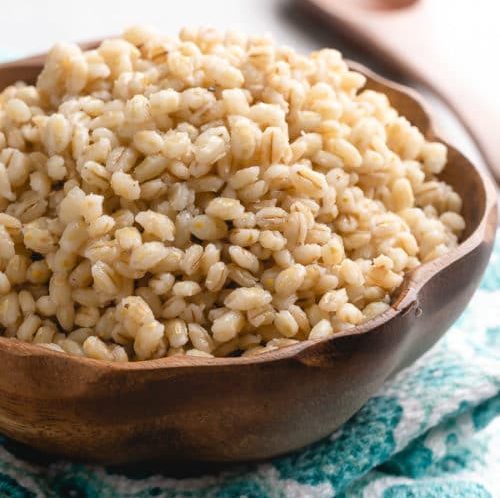
Barley
Potatoes
Although potatoes get a bad rep because they’re so often found in a fried form, potatoes that aren’t fried are quite healthy! They’re full of potassium, which helps reduce blood pressure. They also contain a significant amount of fiber, which aids in preventing heart disease.
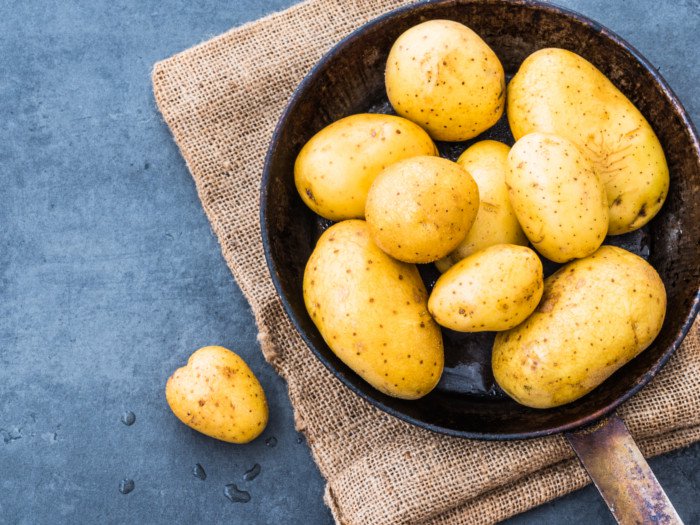
Potatoes
Peas
Green peas are a great source of many minerals that are beneficial to your heart, for example calcium, potassium, and magnesium. They are also high in fiber and help reduce LDL cholesterol. Peas also contain vitamin K and manganese, that help strengthen your bones.
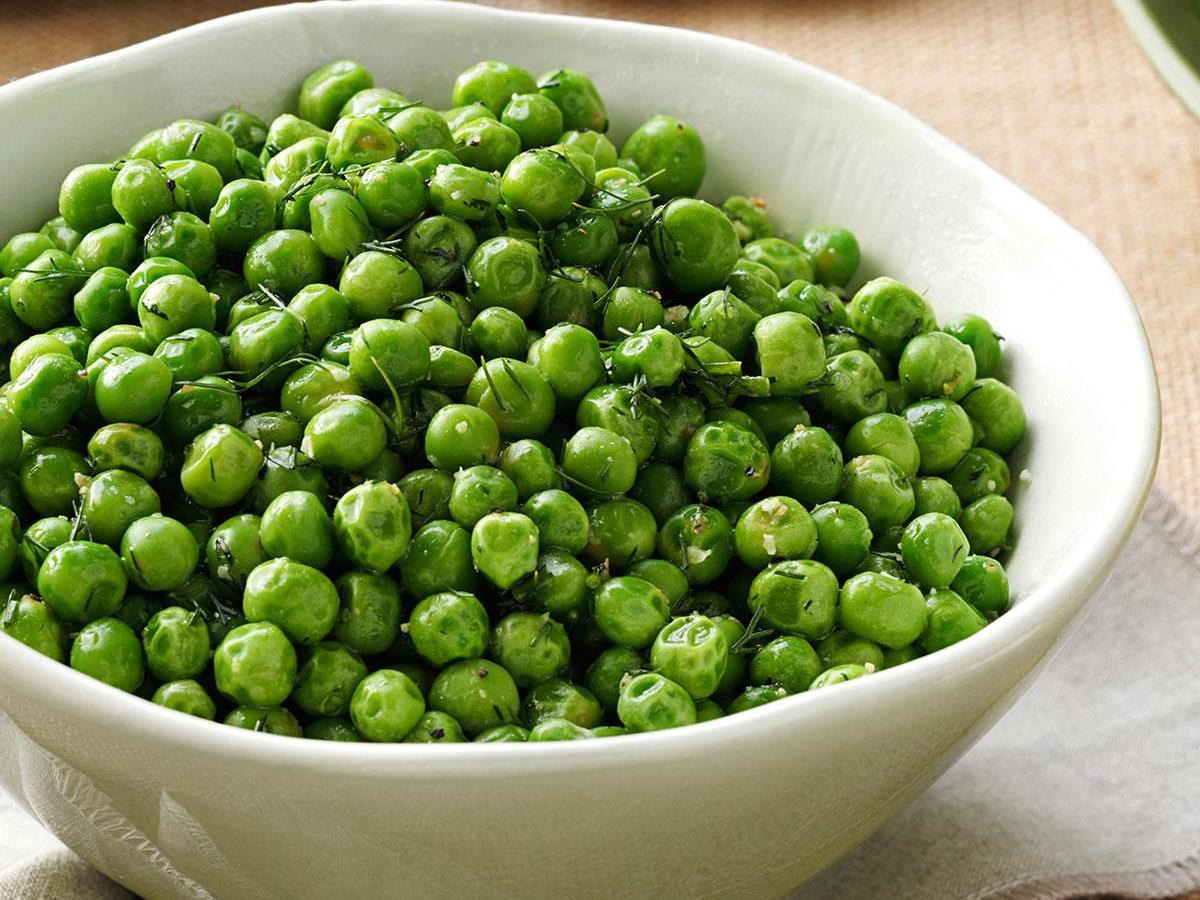
Peas
Bok Choy
It seems obvious to us all that green leafy vegetables are good for health, but we don’t always know exactly why. Bok choy is a great source of folate, vitamins C and B6, and potassium. Additionally, it helps reduce cholesterol. Bok choy is a great choice for those seeking heart healthy foods.
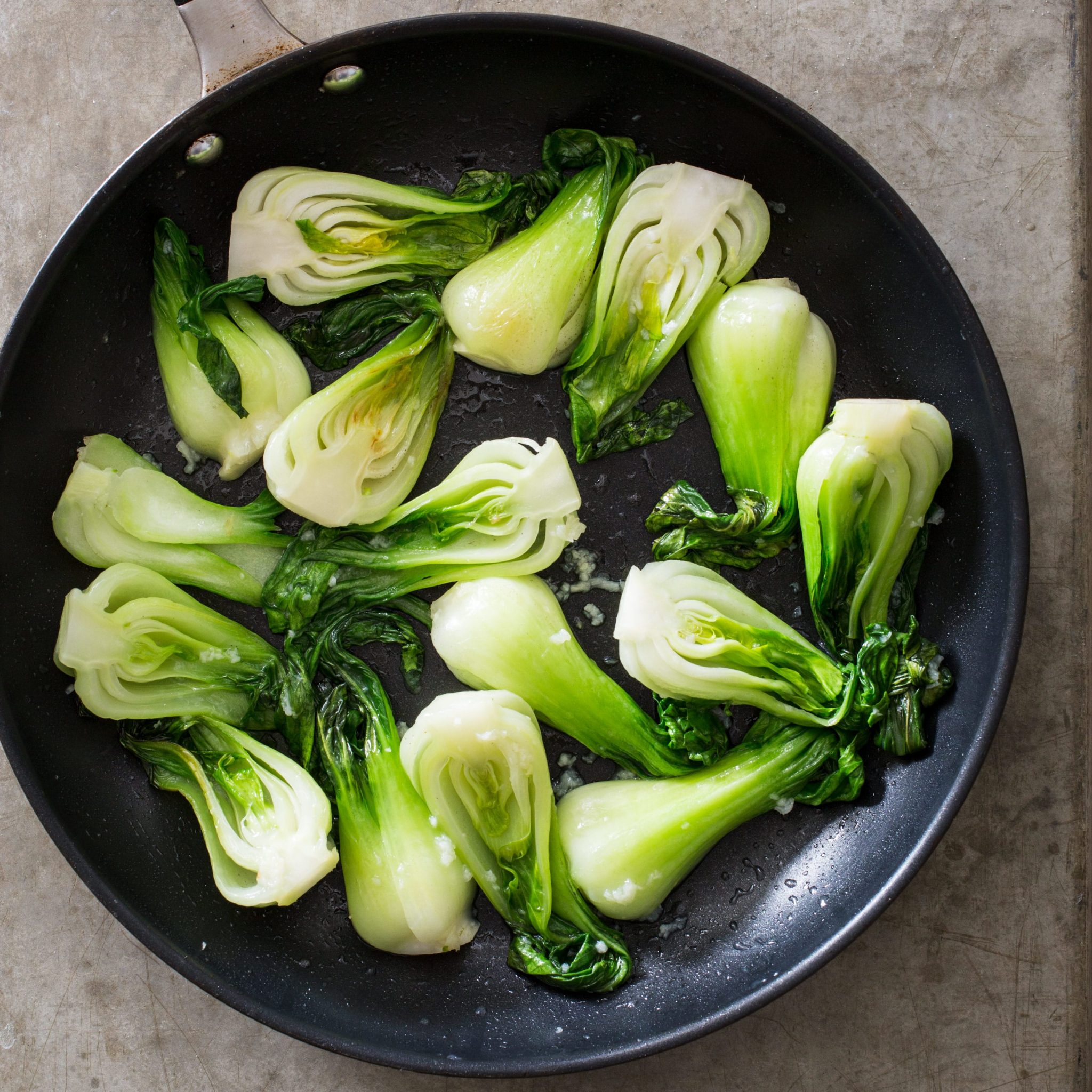
Bok Choy
Soy Milk
Soy milk, especially calcium-enriched soy milk, contains isoflavones, niacin, folate, magnesium potassium, and phytoestrogens, as well as protein. This specific protein that isn’t found in animal milk helps reduce cholesterol and can aid in other heart-healthy benefits.
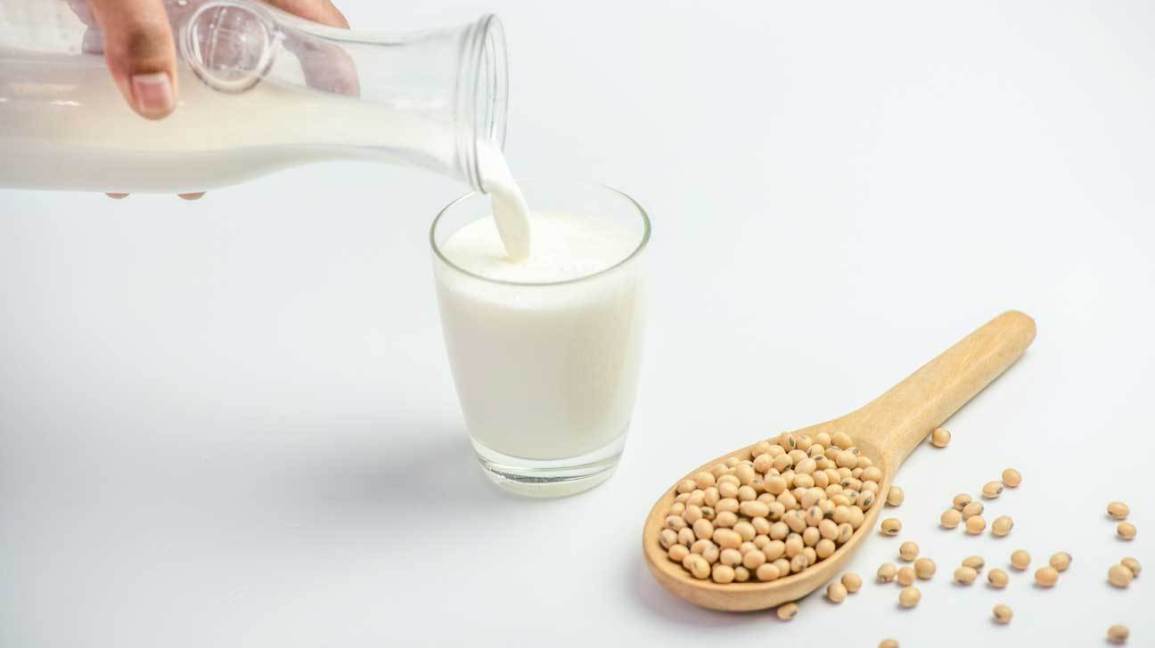
Soy Milk
Red Bell Pepper
Red bell peppers are crunchy, sweet, and bursting with flavor. They’re also bursting with beta-carotene, lutein, potassium, and fiber. The best part about this heart healthy vegetable is that it is so versatile!
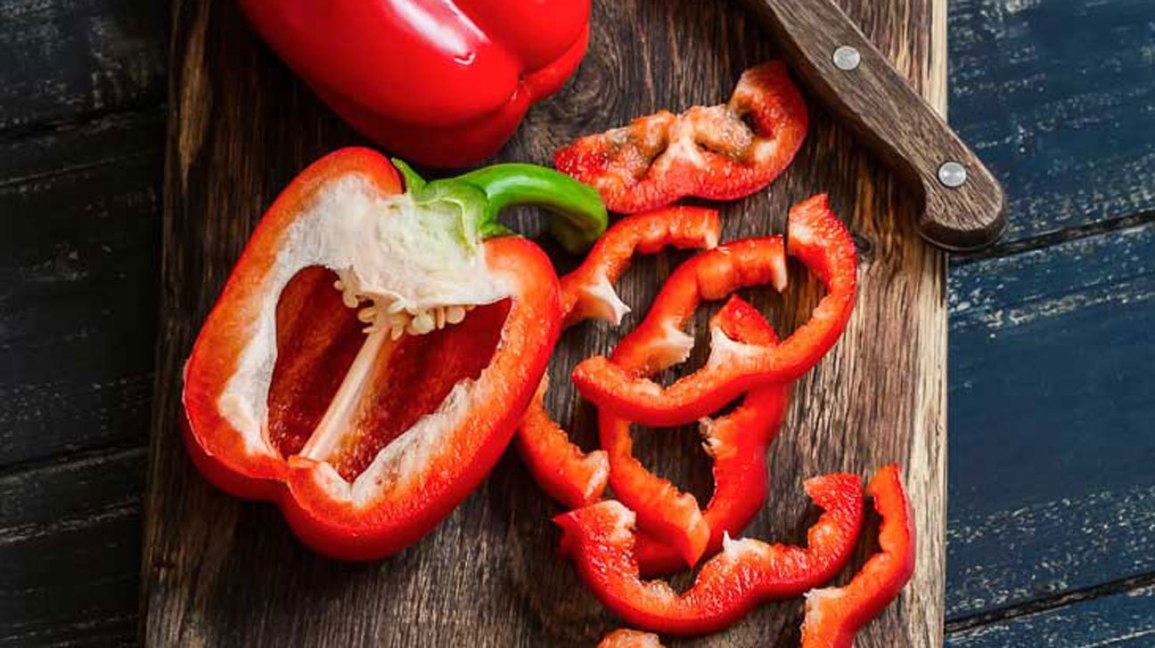
Red Bell Pepper
Acorn Squash
Acorn squash are incredibly versatile. Roast them with some sea salt and olive oil and then eat them plain, or add them to pasta or salad. They’ll help keep your heart healthy due to the beta-carotene, lutein, calcium, magnesium, and fiber you’ll find in these delicious squashes.
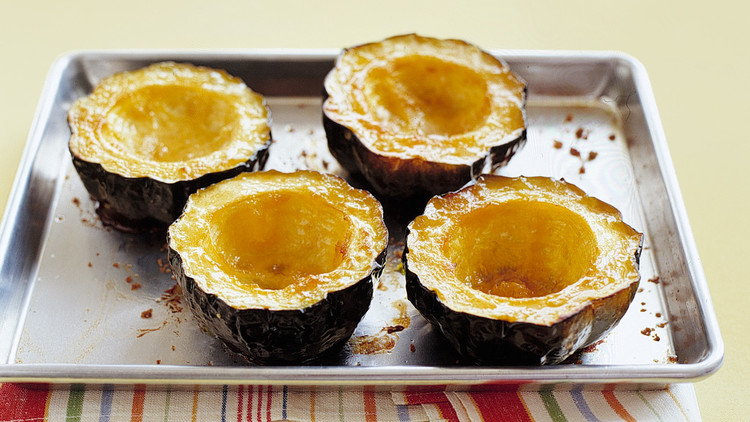
Acorn Squash
Cantaloupe
Cantaloupe is a wonderful refreshing and delicious summertime treat. It is also full of nutrients that will help contribute to the health of your heart. These include vitamin C and B-complex, fiber, folate, and potassium.
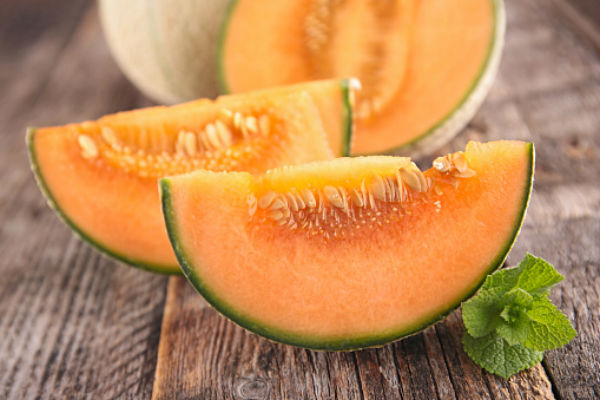
Cantaloupe
Papaya
Papaya is a delicious tropical fruit that’s also a great heart healthy choice for a snack. This is because papaya contains beta-carotene, lutein, vitamins C and E, calcium, potassium, magnesium, and folate, all of which contribute to increased heart health.
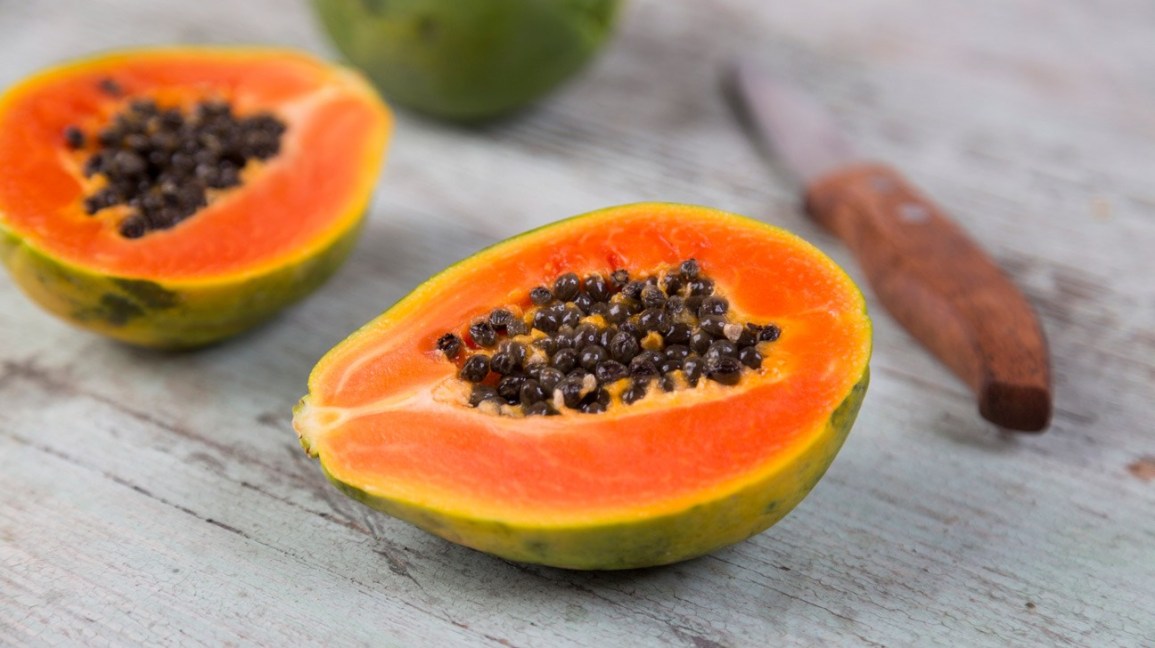
Papaya
Wild Rice
Wild rice contains more protein than regular rice, but that’s not where its benefits end. It also contains essential nutrients and antioxidants. Not only does wild rice help promote heart health but also helps prevent the risk of type 2 diabetes.
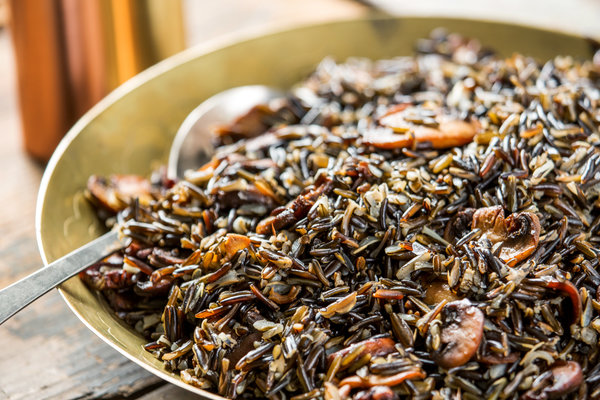
Wild Rice
Bulgur
Bulgur is yet another great grain option for optimal heart health. It contains a significant amount of magnesium, manganese, and iron, all while being lower in calories than rice and quinoa. It may not be as popular of a choice, but it seems to be the best choice!
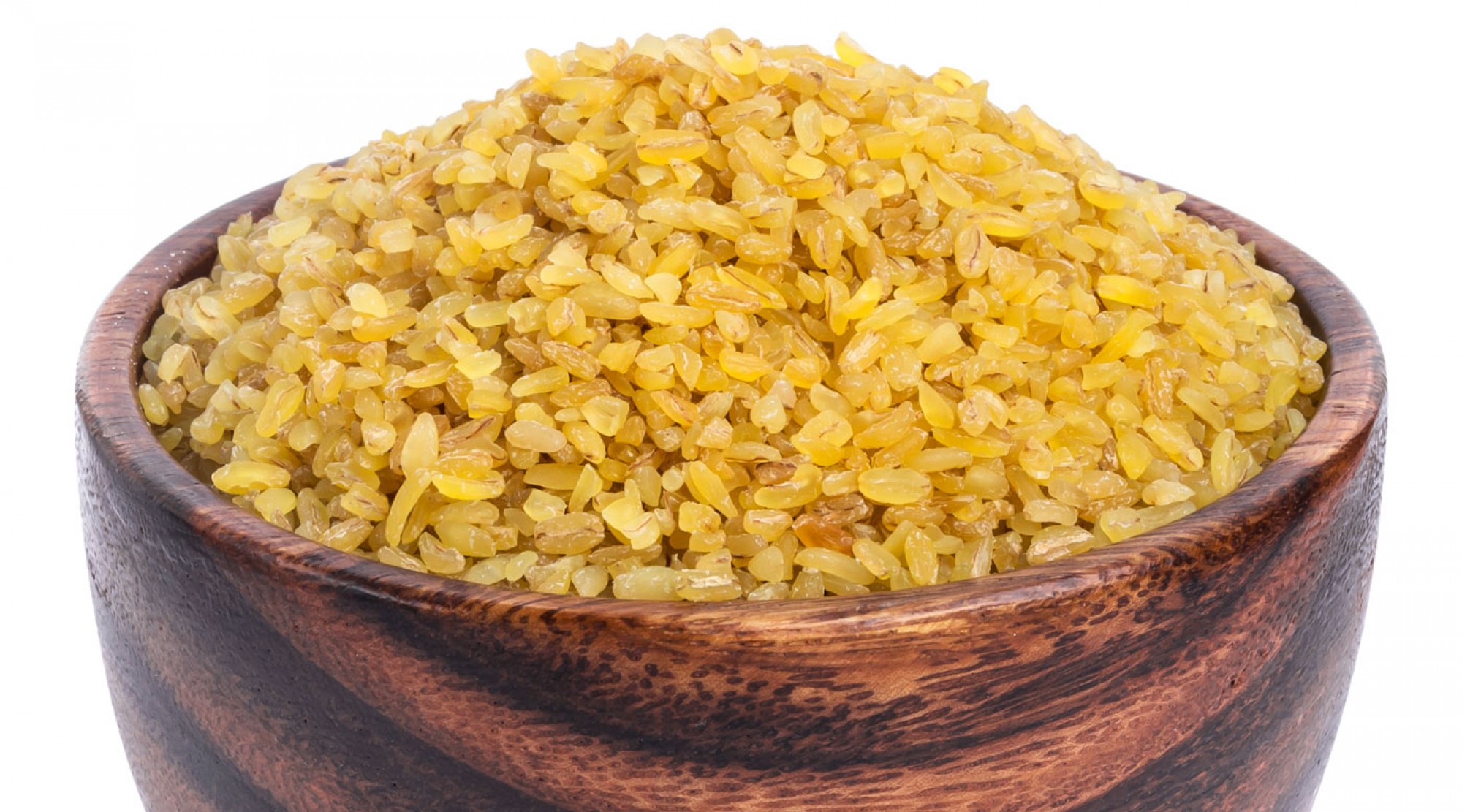
Bulgur
Millet
Millet is a highly underrated grain. It is quite creamy (like mashed potatoes!) and pairs well with many different foods. You can even find millet couscous. It contains magnesium, which helps lower blood pressure and the lower the risk of heart attack.
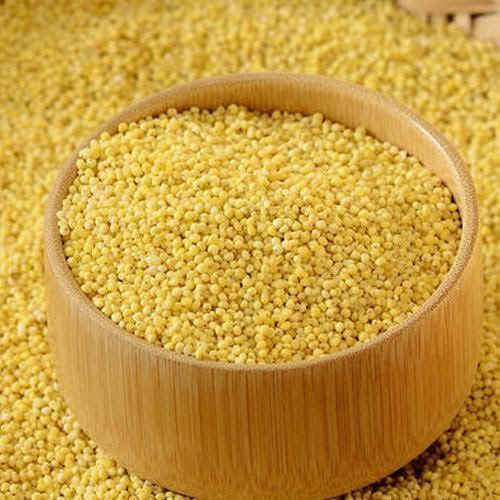
Millet
Sorghum
Sorghum is not very well known, but it is truly versatile and healthy. It is gluten free and is a great option for those with celiac disease. Sorghum helps promote strong bones and teeth, and helps control diabetes and heart health.
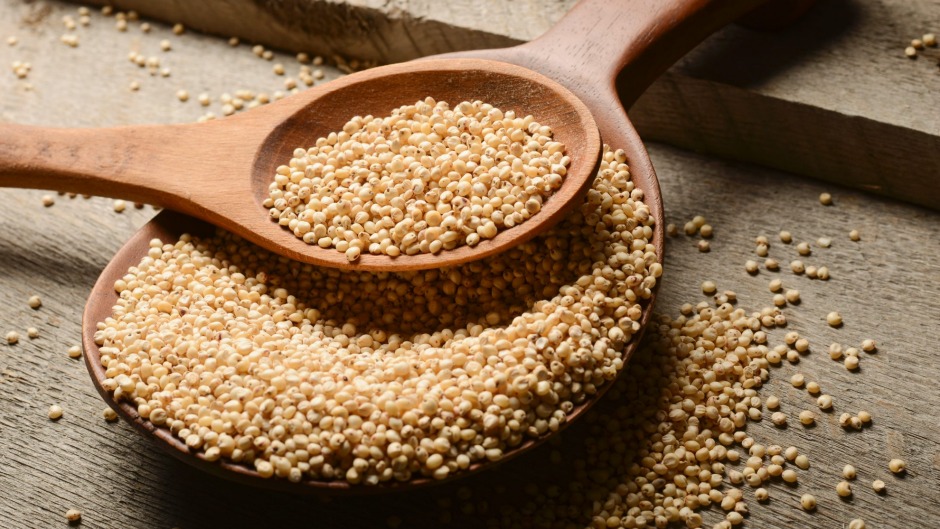
Sorghum








